Step inside Barton Springs Mill and see how the grains are processed
Barton Springs Mill acts as a grain hub, connecting bakers, brewers, distillers and chefs directly with locally grown grains. It’s this direct connection that was lost as the network of small mills disappeared as our food became industrialized over the last century.
James Brown, Barton Springs’ founder, had been a classical musician with a full-time gig as a church musician. He was looking at what he could do for a second career … something he would want to do that he would love. In addition to his musical training, James has a culinary degree but at the age of 53, he didn’t want to get back in restaurant kitchens.
Inspired by the famous series of bread books, Tartine, James began baking and thought of opening a small bakery. Tartine Bread 3 came out covering artisan wheat and interesting flours. At the time he says he was making “crappy bread” so he tracked down a source that takes sourdough and applied that to heritage grains.
During this time, James hung out at a few mills and even “forced his way” into Hayden Flour Mills to see if it was a fit, and he was hooked. James then went to Grain Gathering at Washington State Univeristy an immersion class that taught about locally and regionally sourced grain along with how to launch a grain hub. After the class, James put deposit down on mill and sifter, looked for a building and then began to identify farmers and entice them to work with him, growingh grains that hadn’dt been grown since the 20th century.
James currently works with between five and eight farmers each year. He mills on demand for his wholesale clients like Easy Tiger and Treaty Oak Distilling. He mills everything all year long — wheat, rye, buckwheat, corn, emmer, eight varieties of hard red winter wheat … preserved, land raced varieties that don’t fit the requirements of industrial-scale mills or bakeries.
Barton Springs Mill grinds grain in two ways. The majority of its grains are stone-ground, an ancient way to process grain by crushing the berries between two massive stones. This approach keeps the oils and the germ intact. The result? Culinary flours that have high nutritional value and deep flavor. They also run a hammer mill three days a week — these hammer-milled grains go to local distilleries and breweries.
In late 2019, James moved Barton Springs Mill from its original location on Frog Pond Lane to a two-acre plot on Treaty Oak Distilling’s land. He supplies the craft distillery with over 1.7 million pounds of grain each year for it’s whiskey, so why not just move in next door!

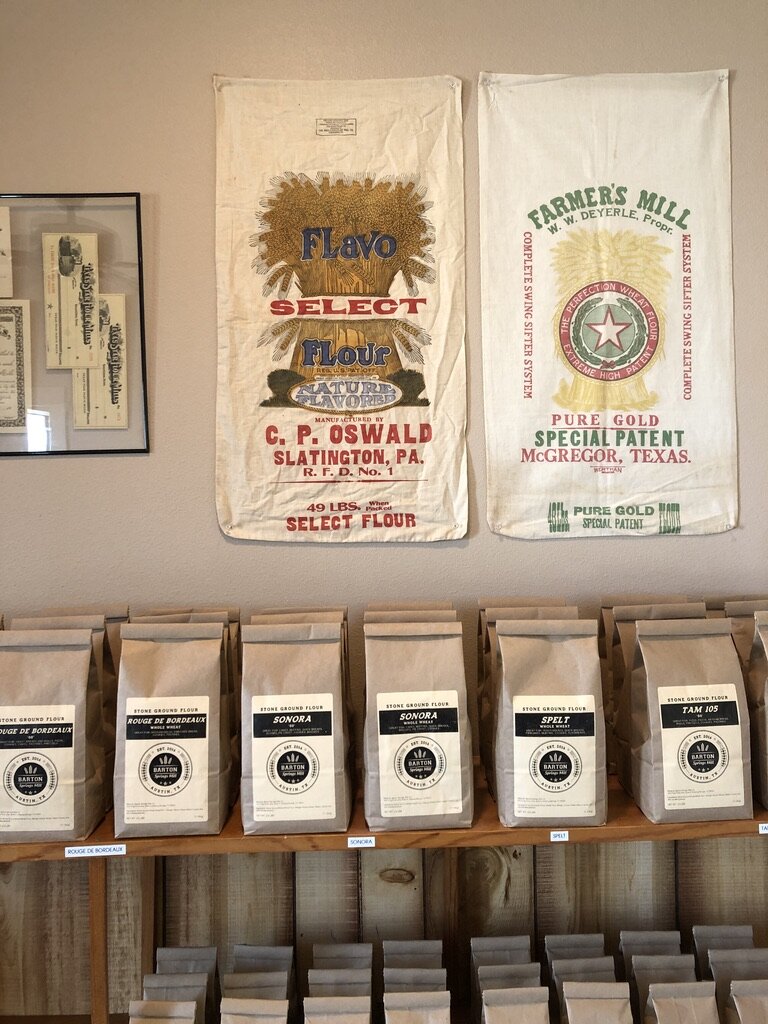
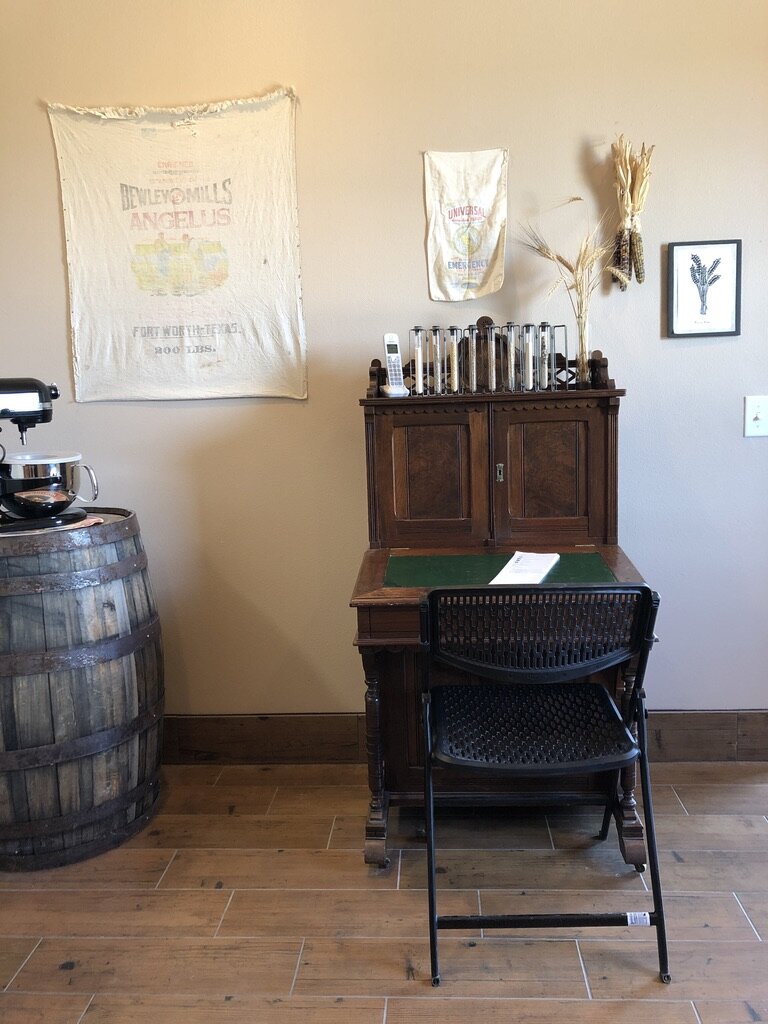

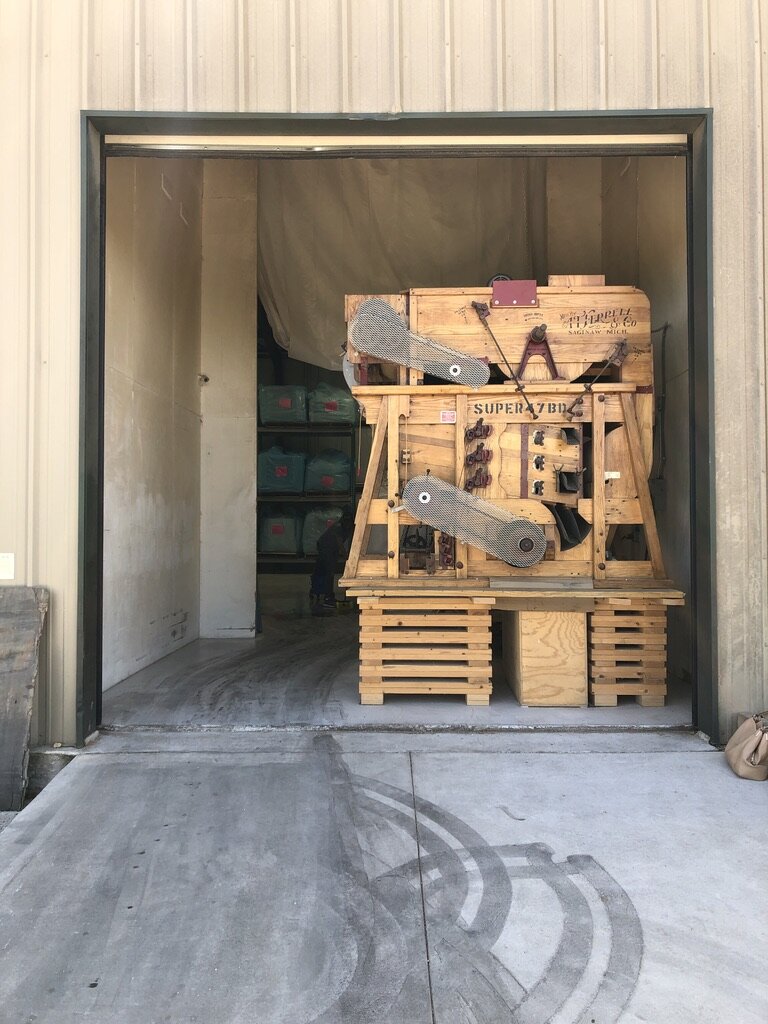
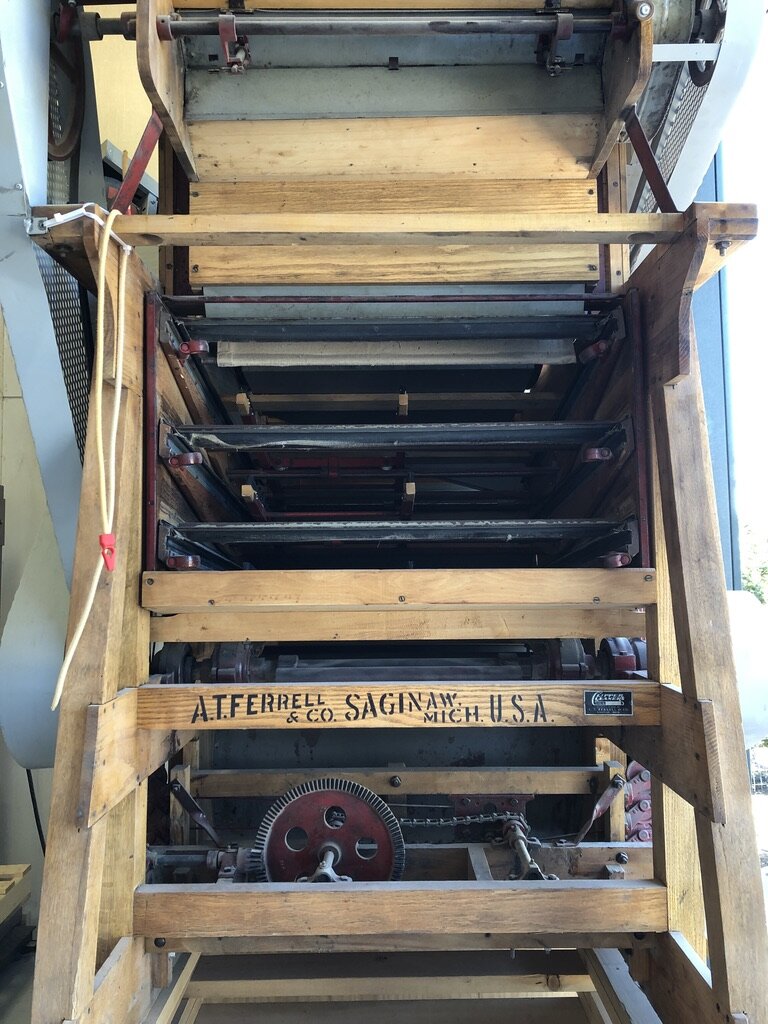
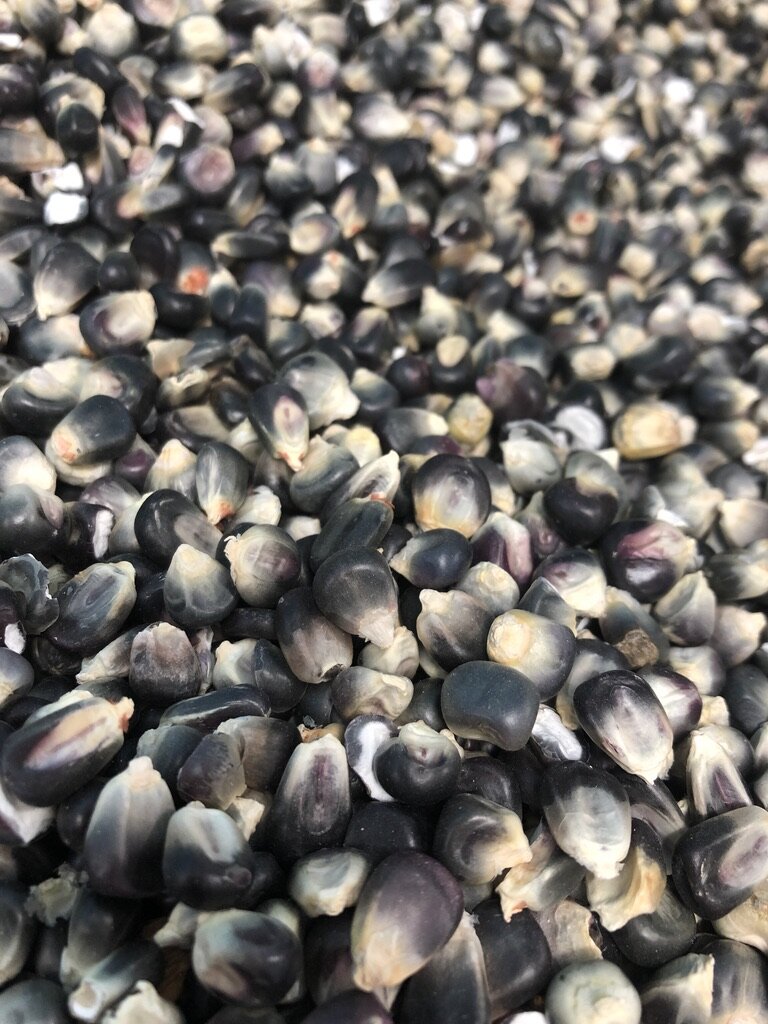
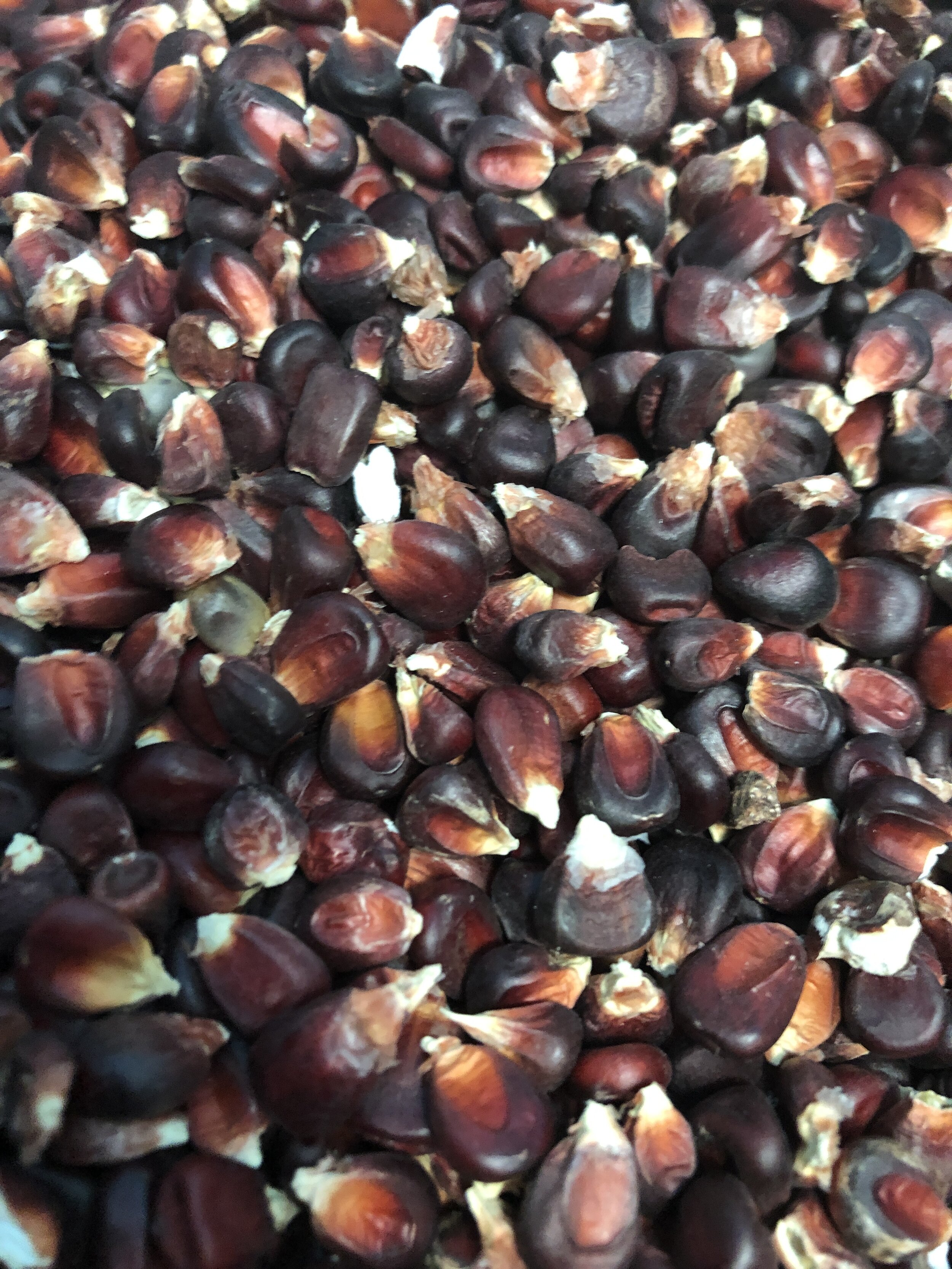
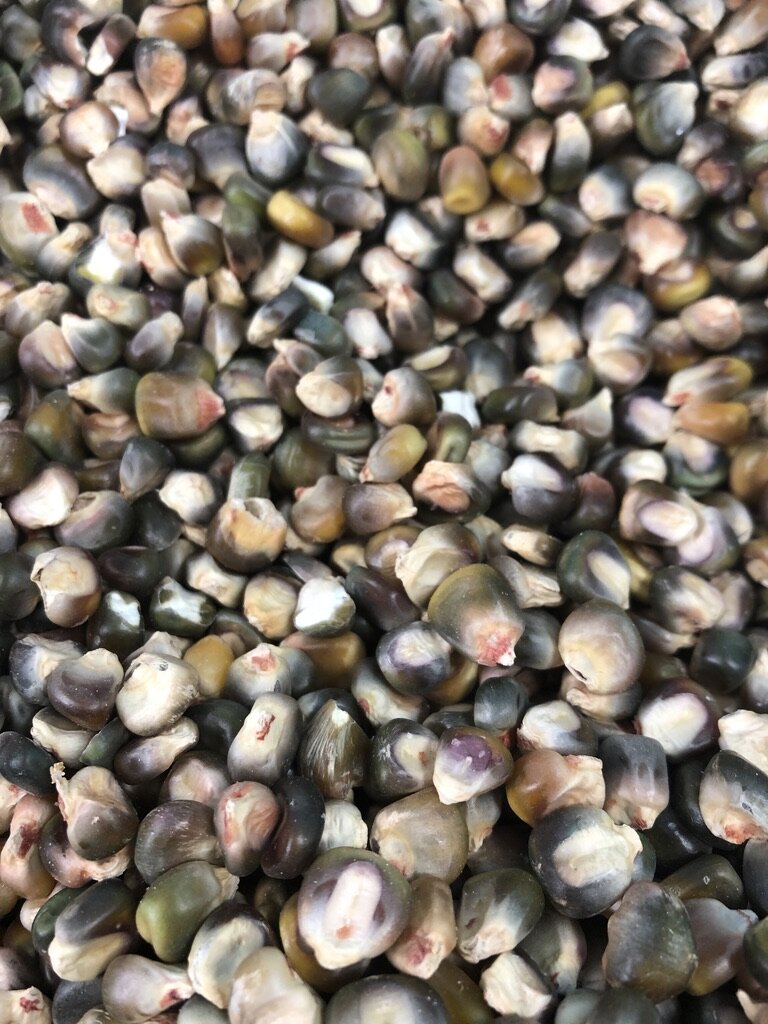

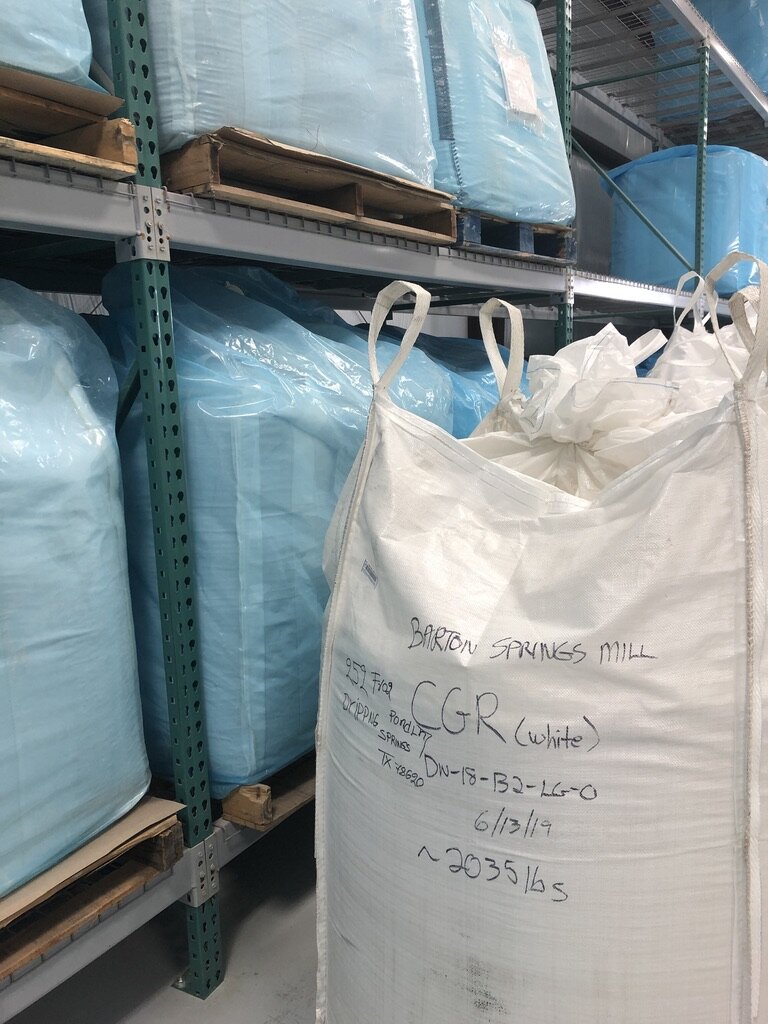
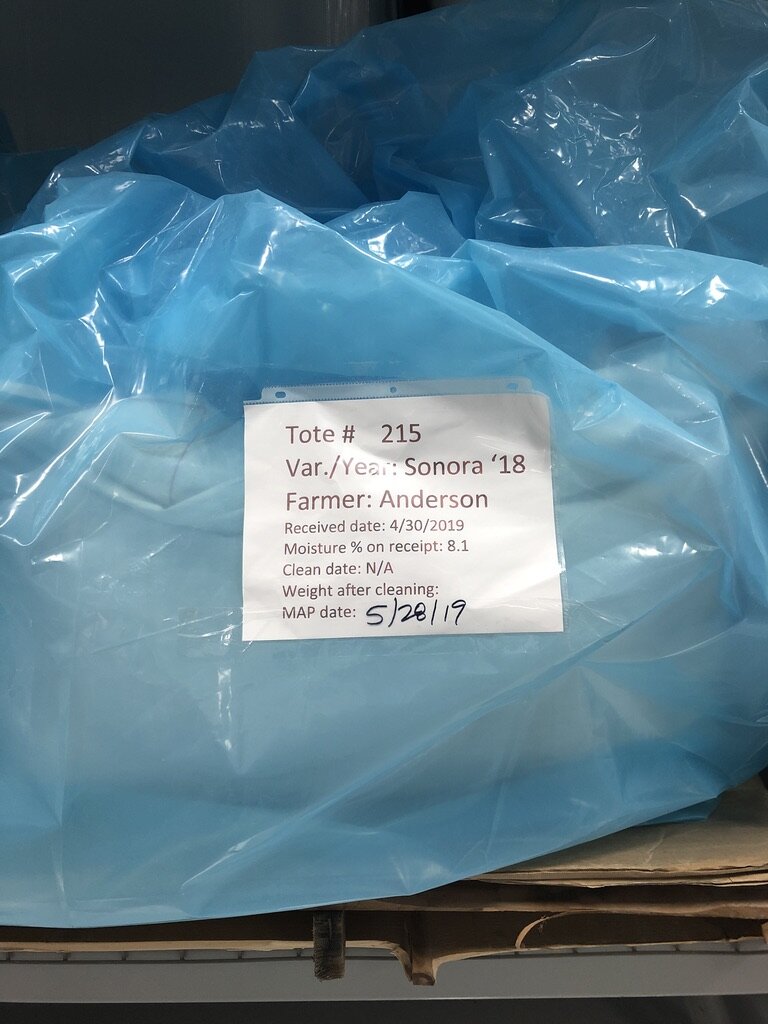
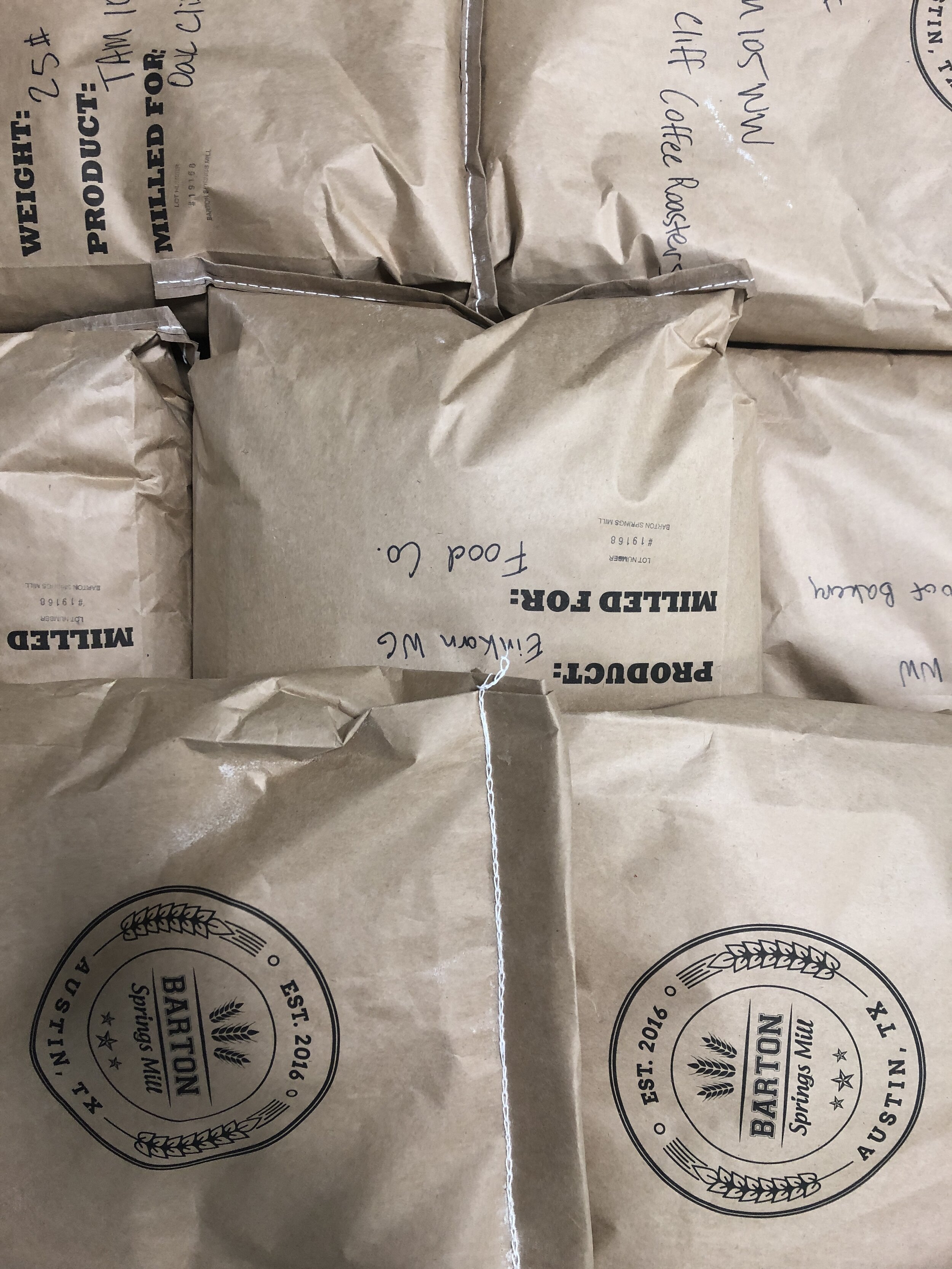
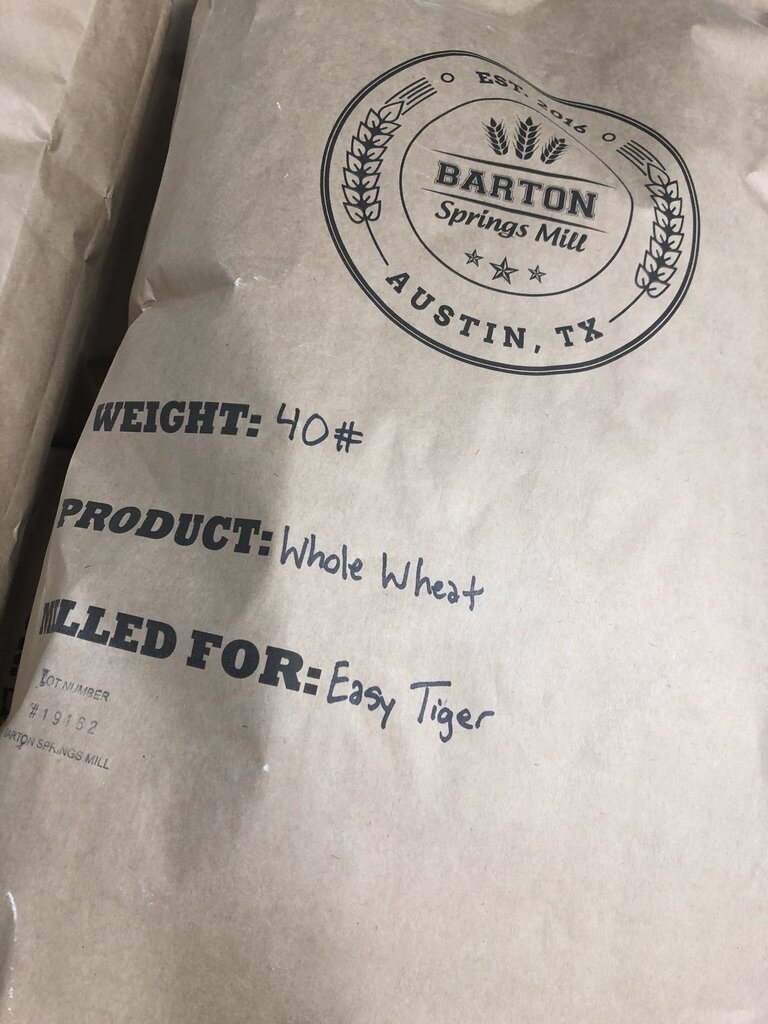
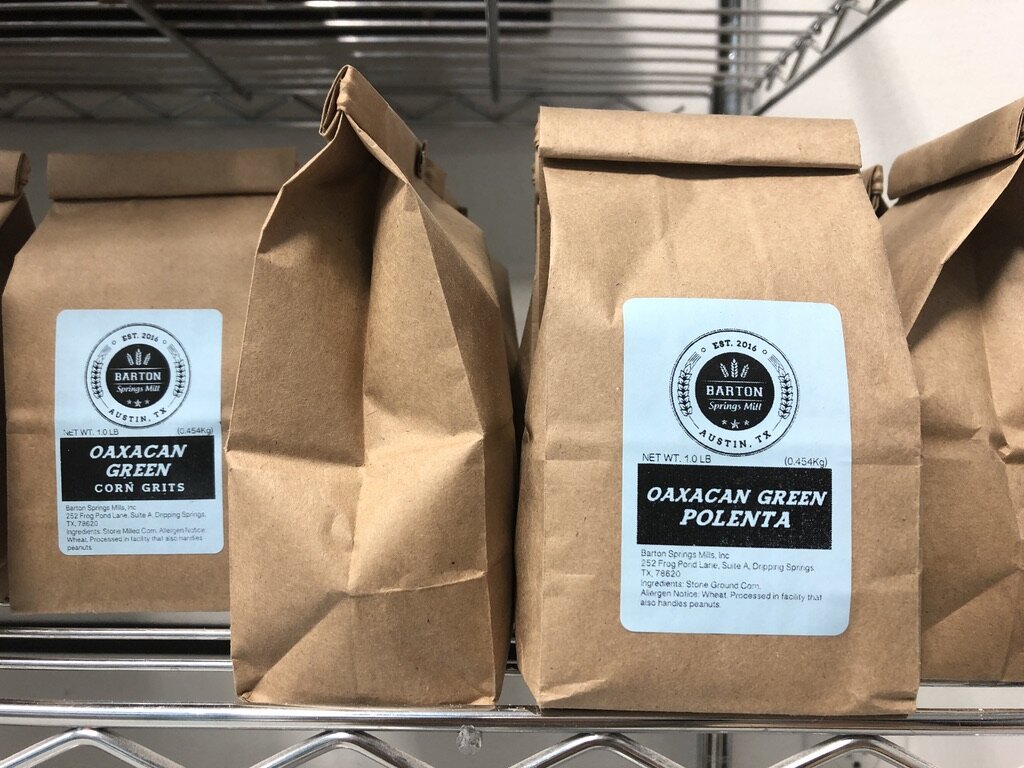
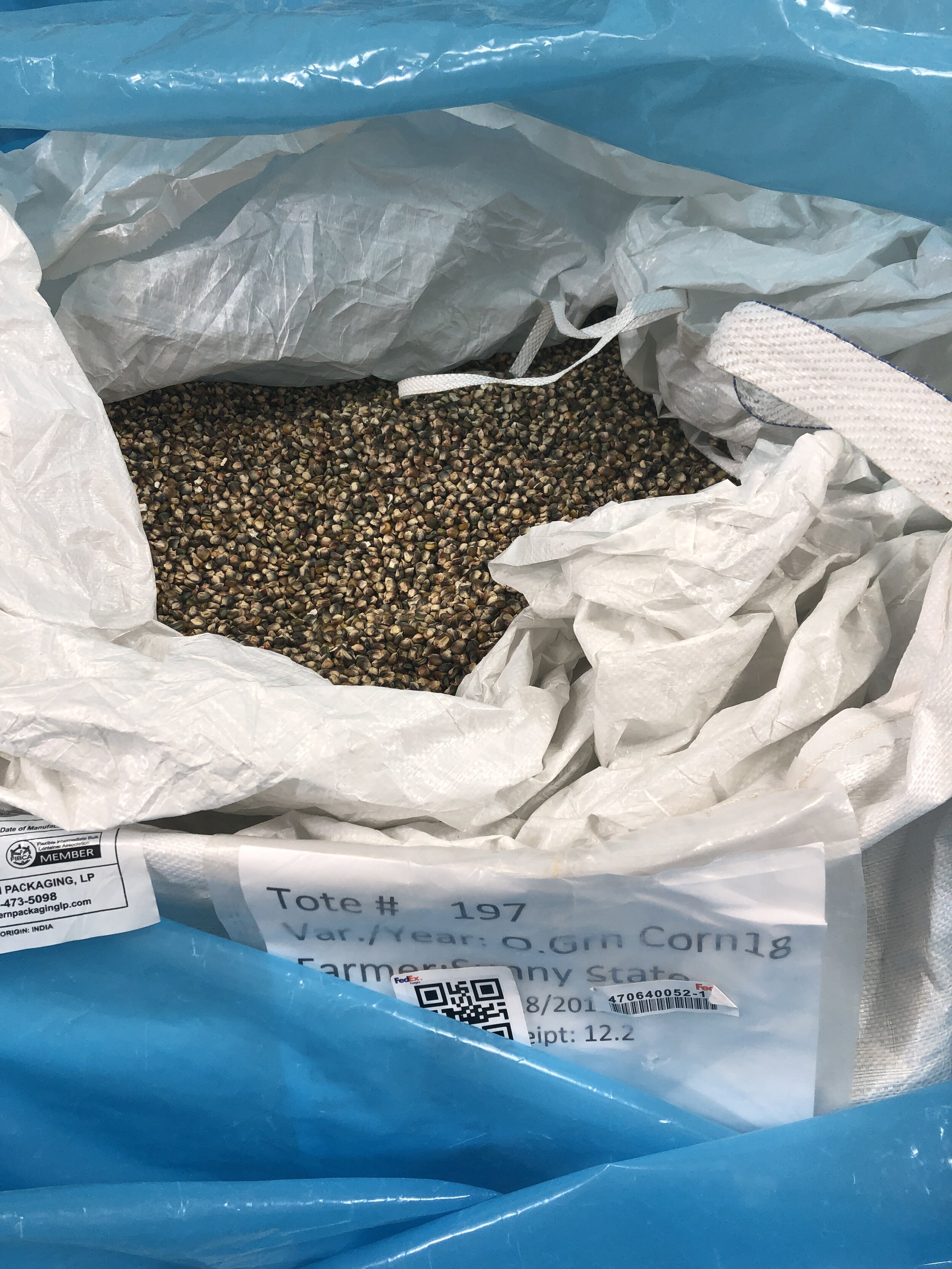
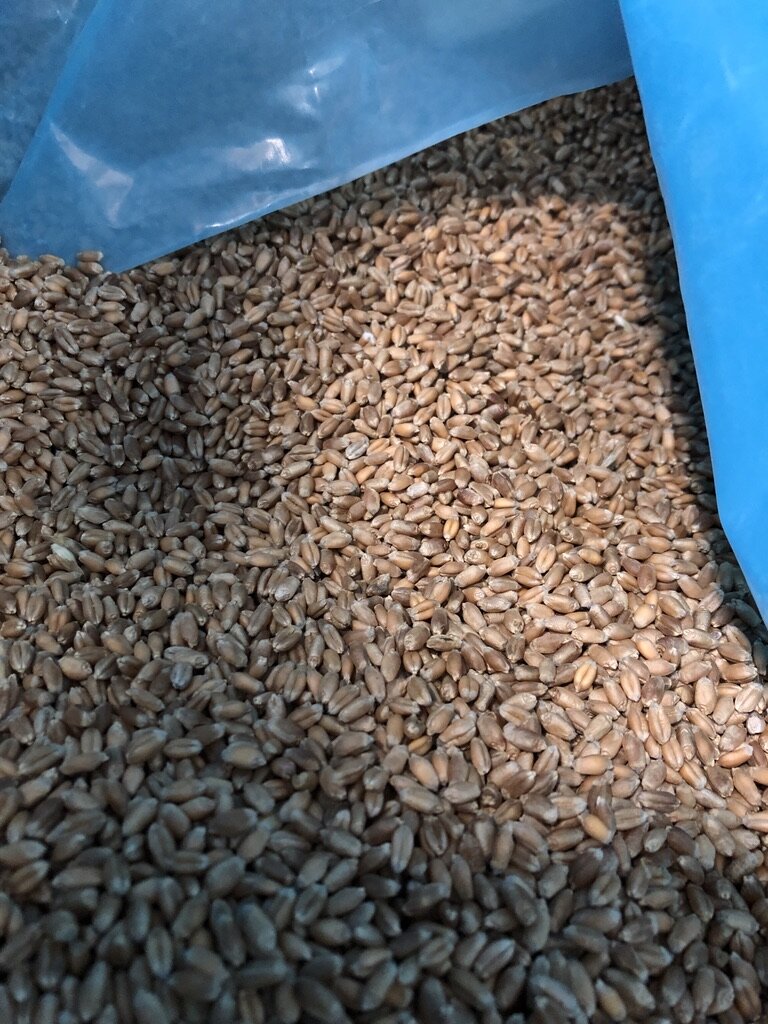
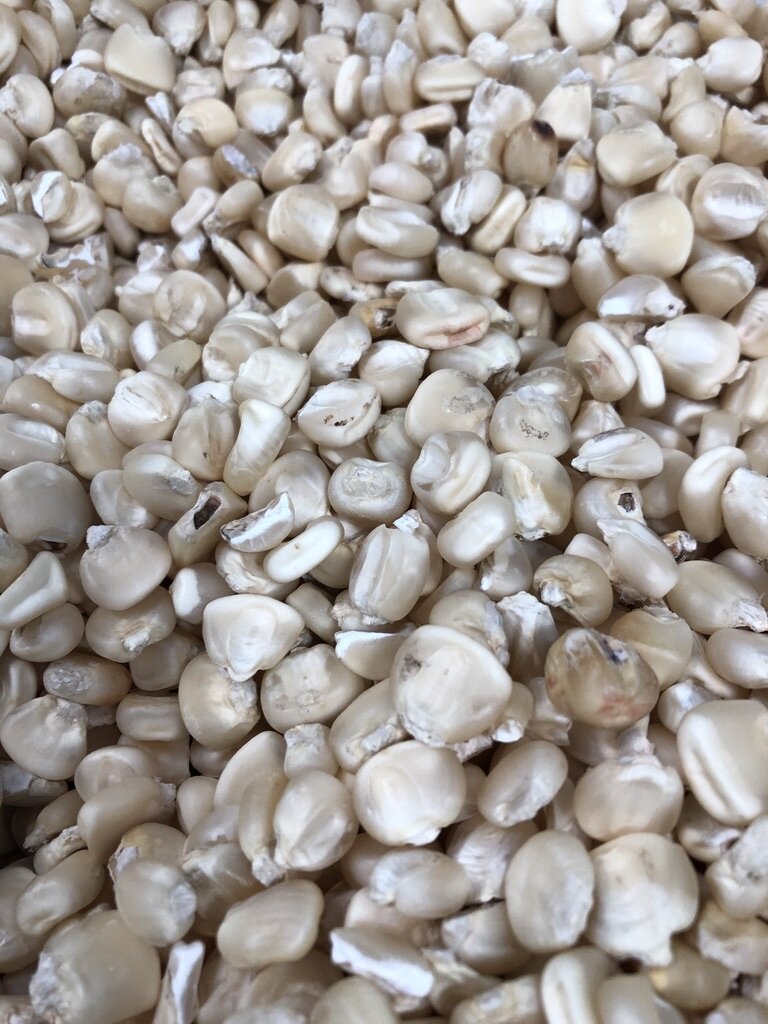
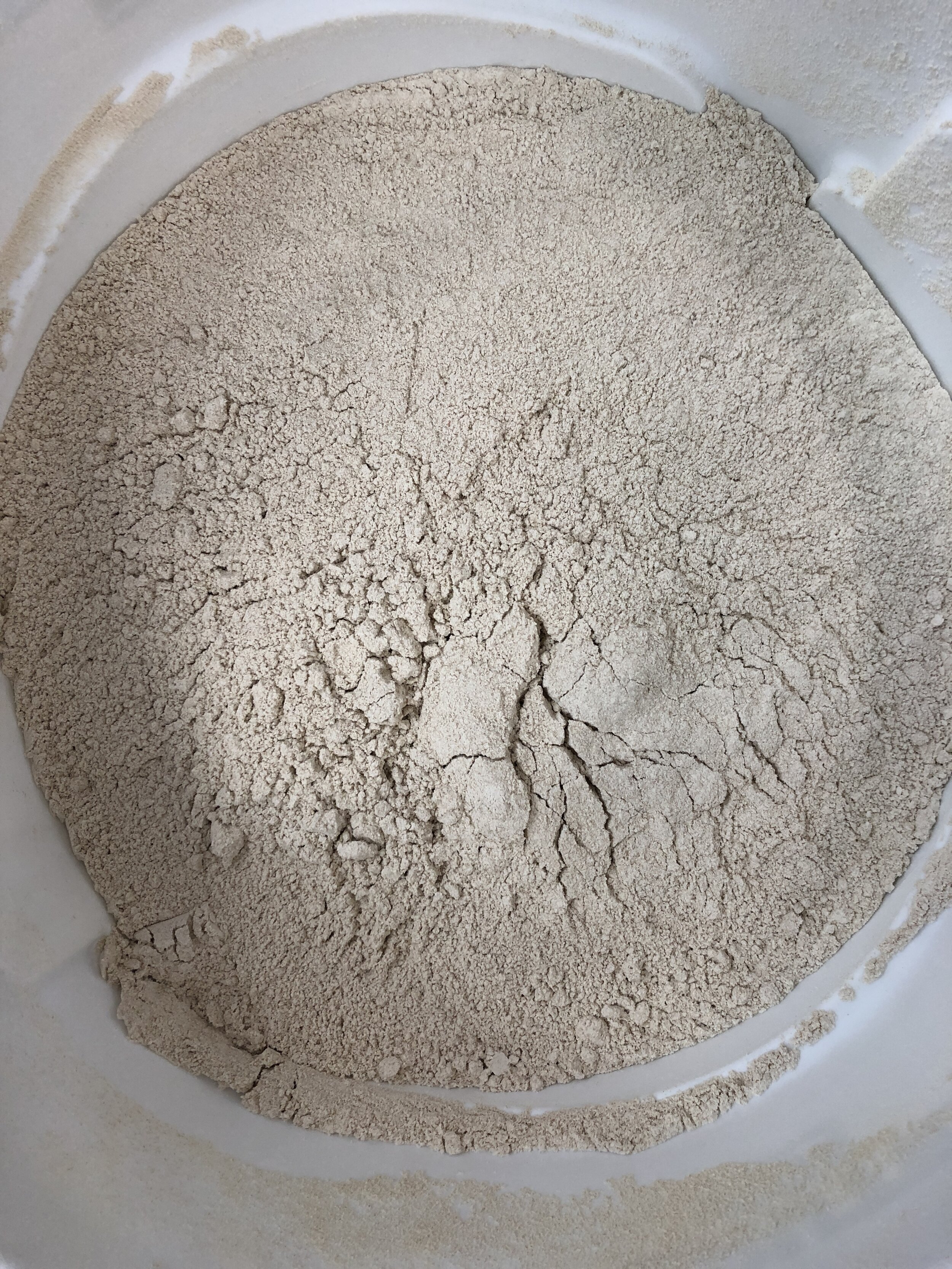
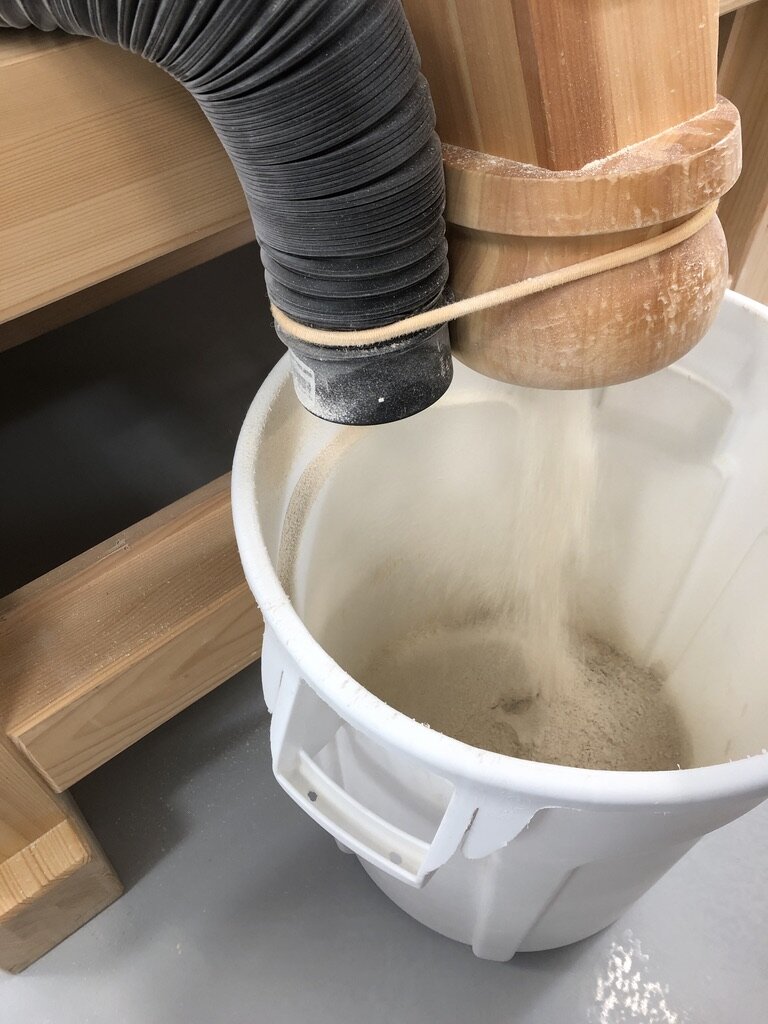
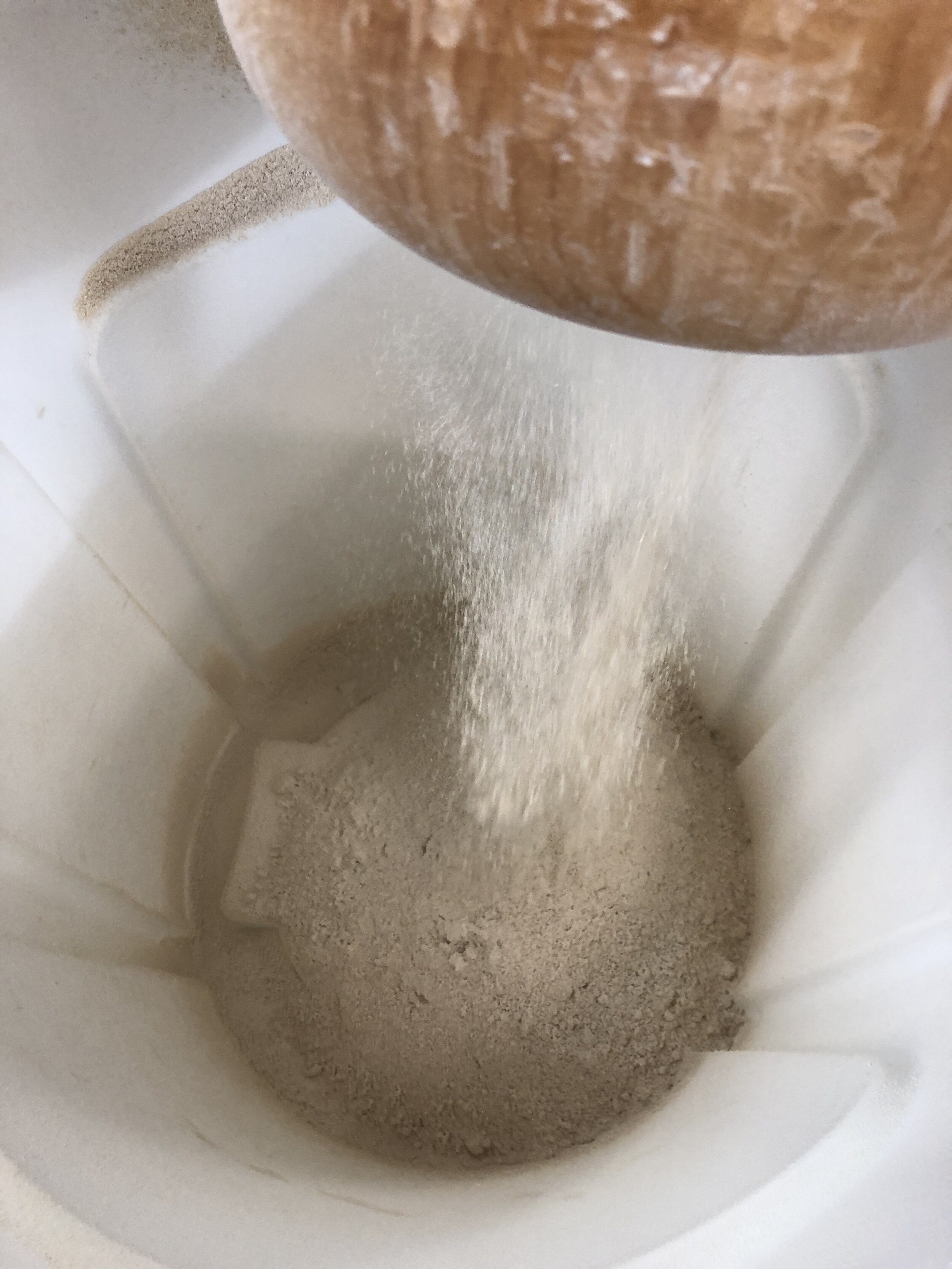

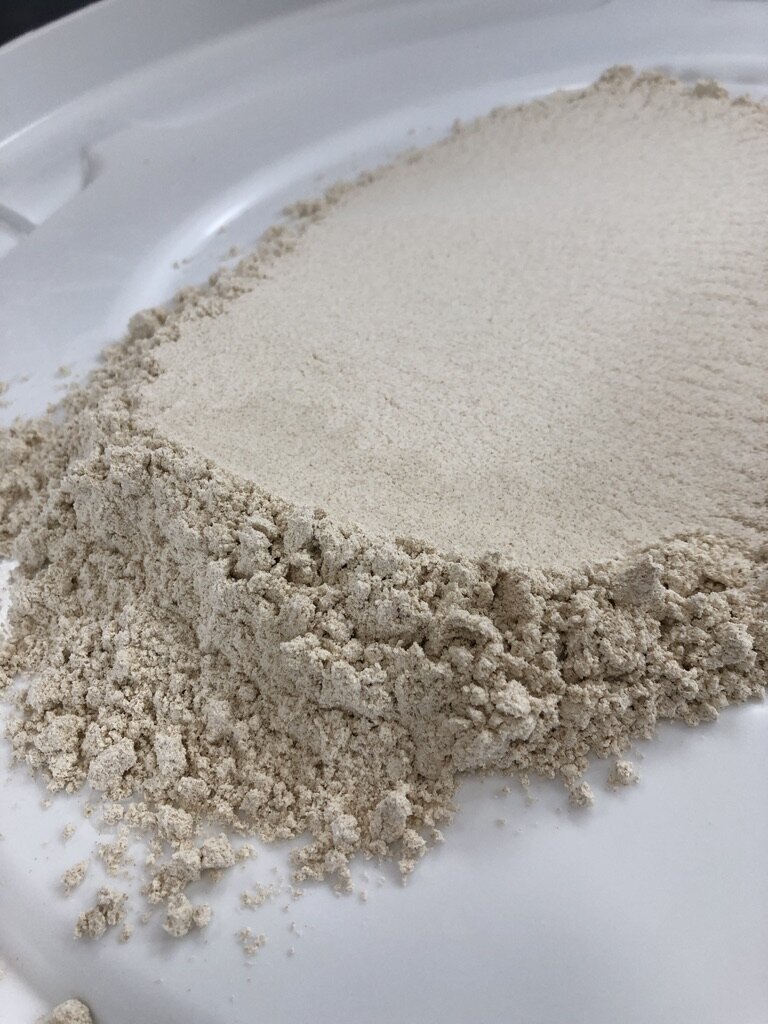


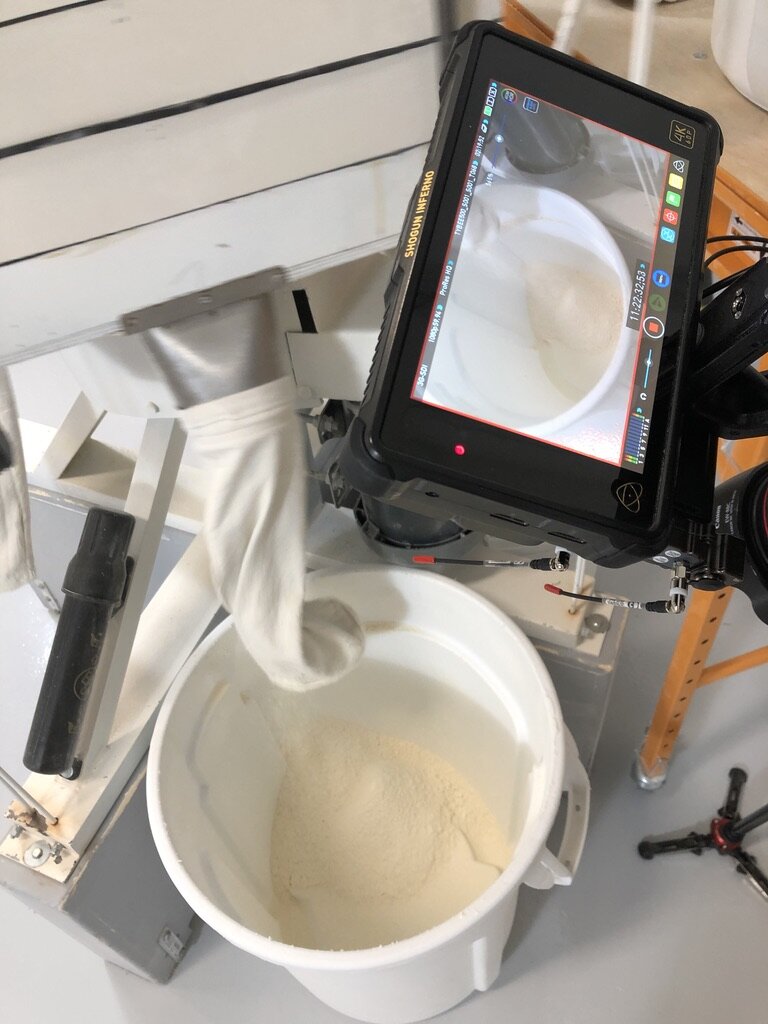
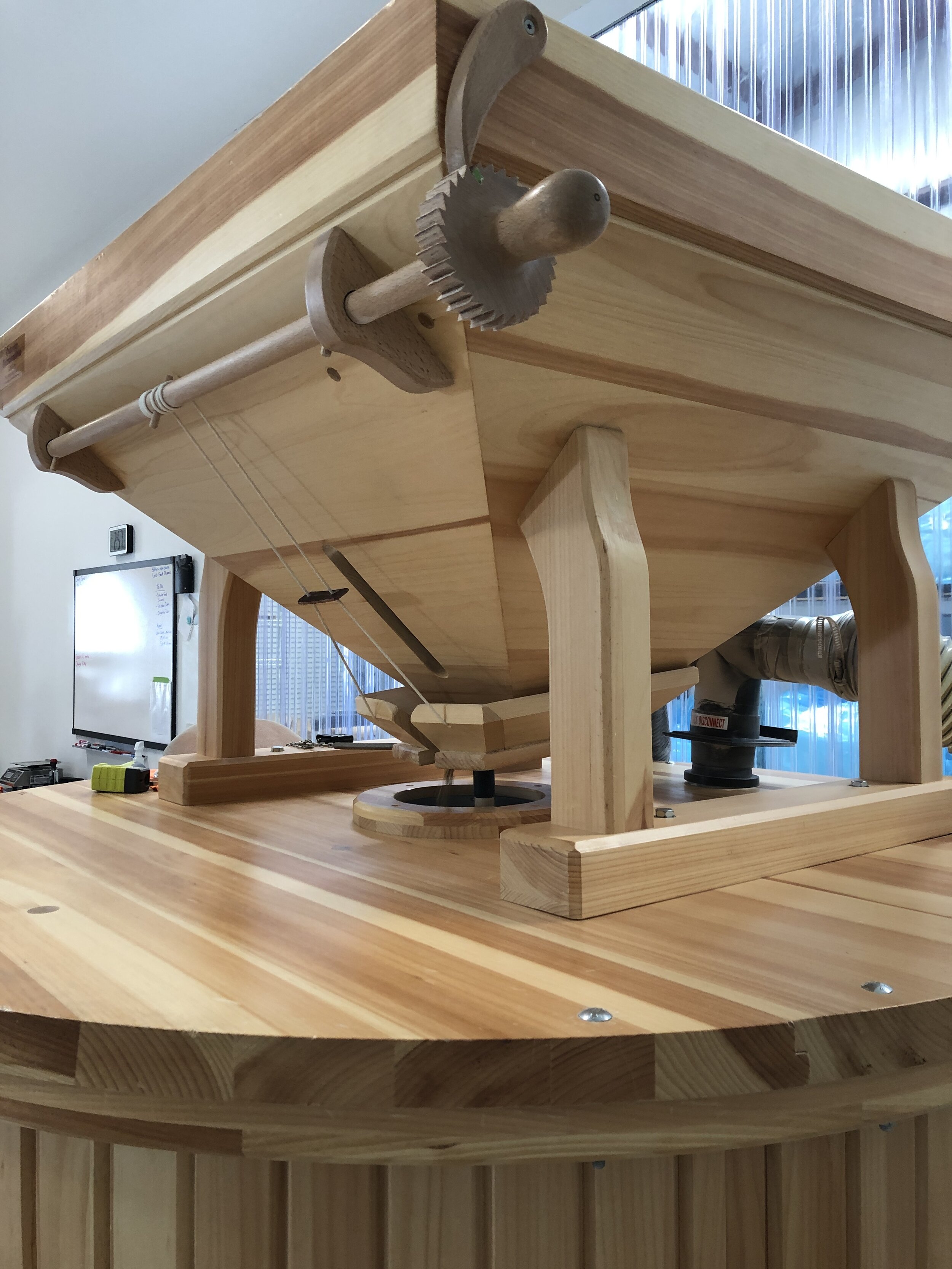


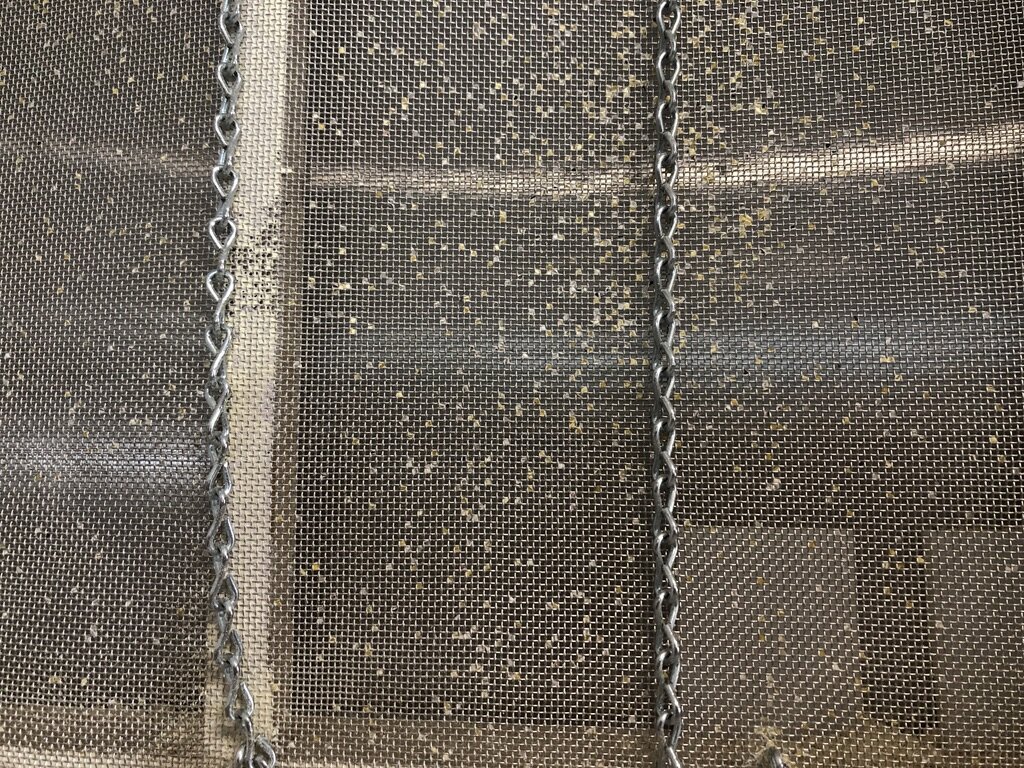
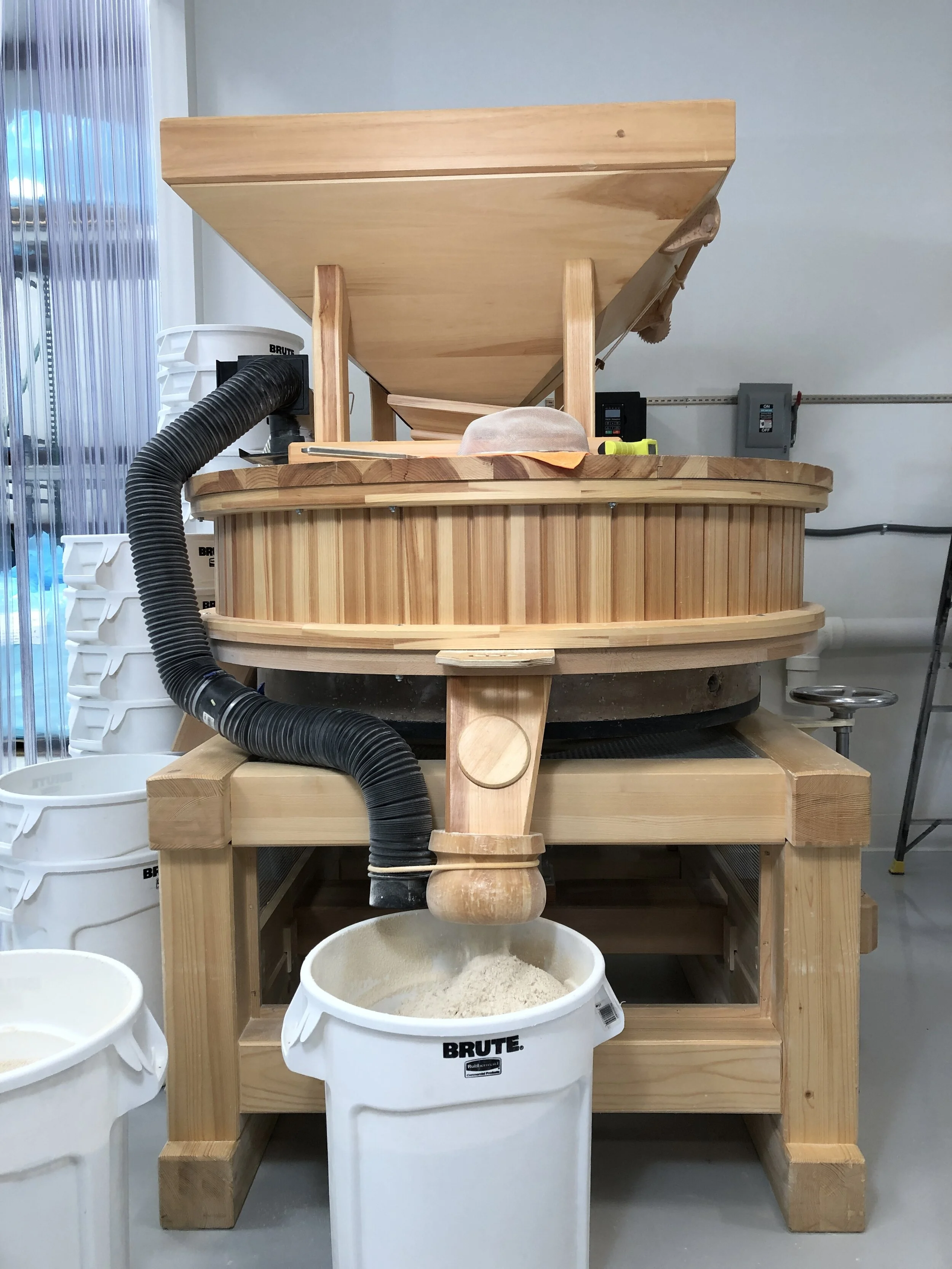
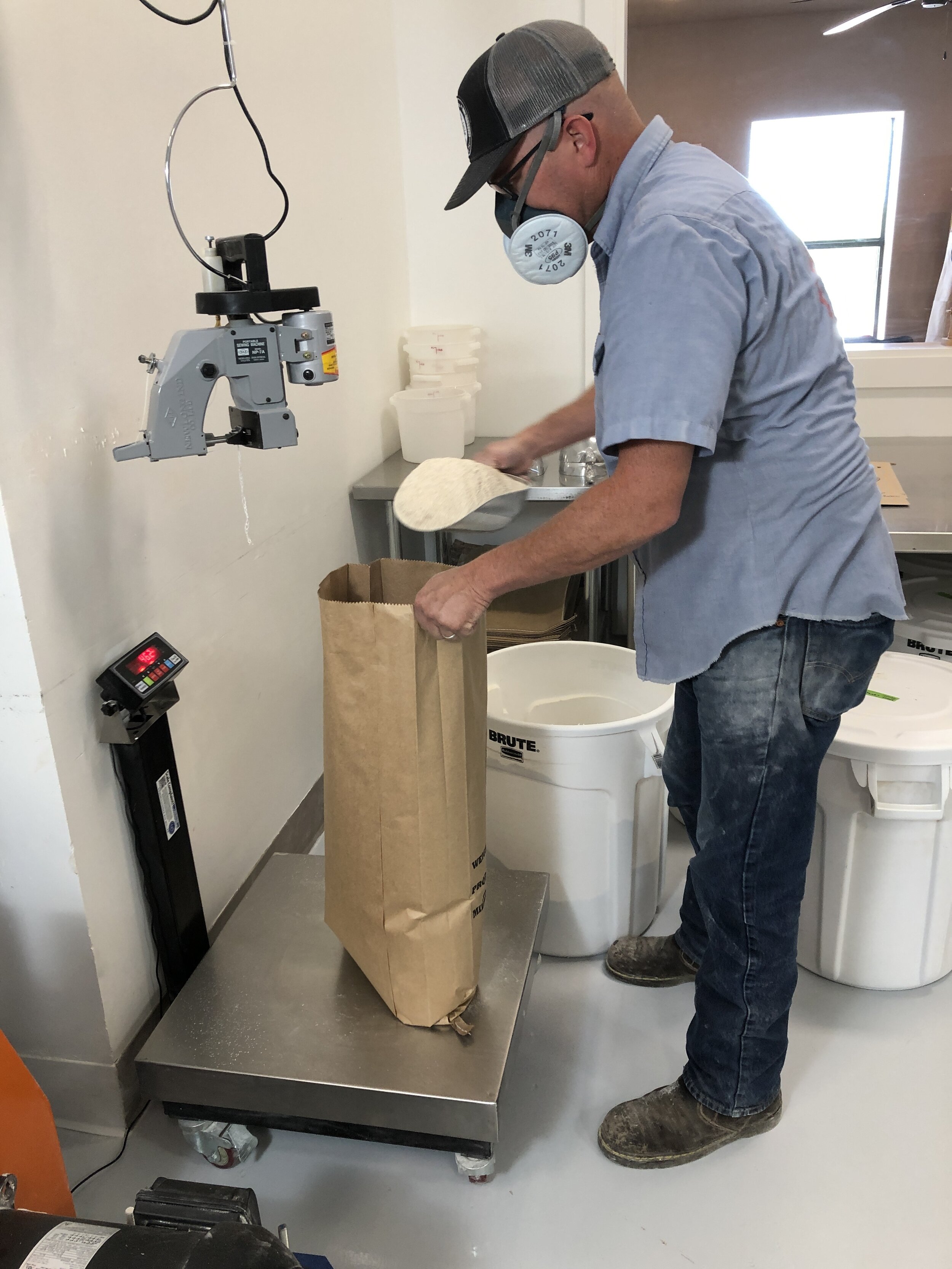
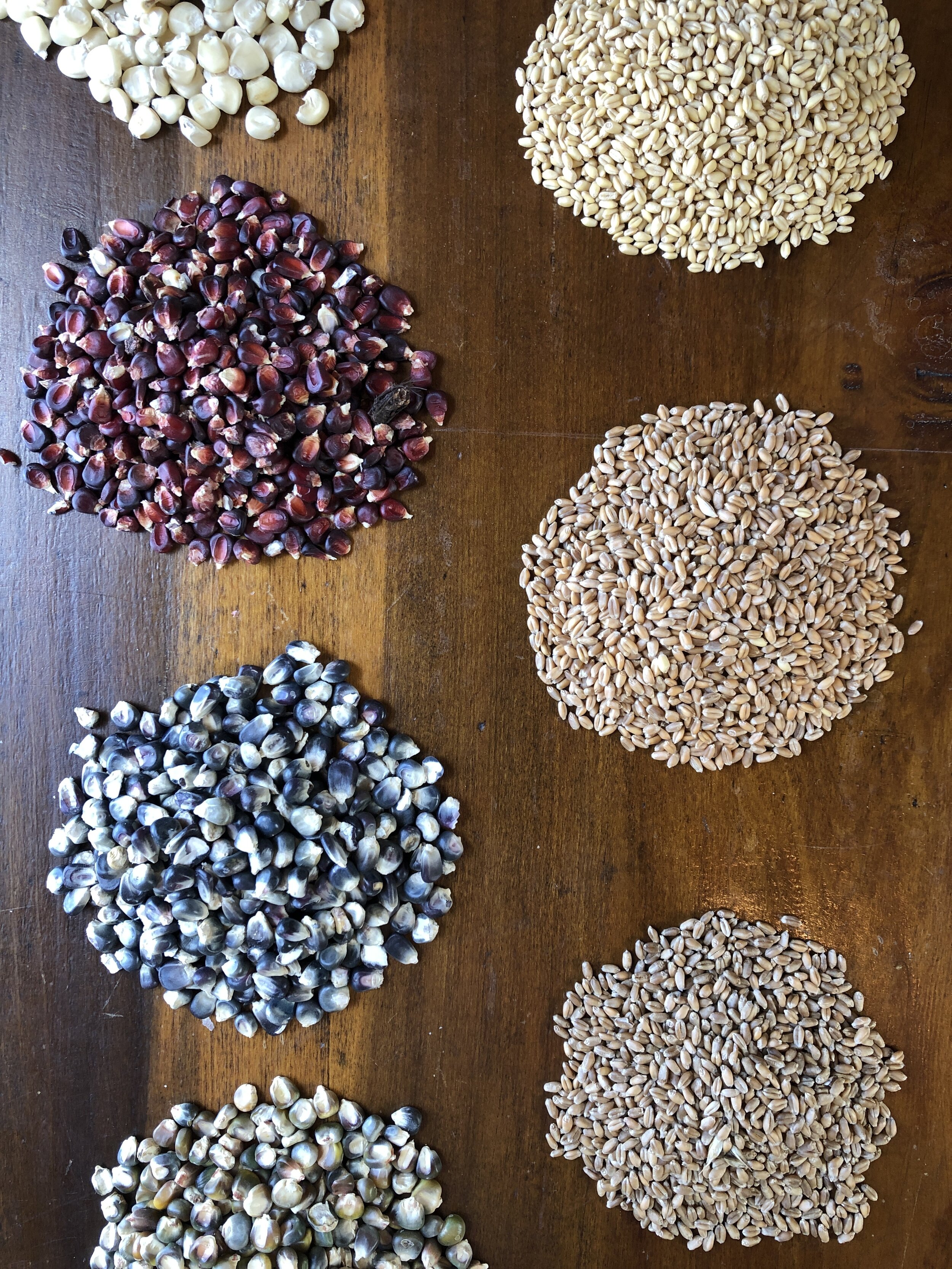
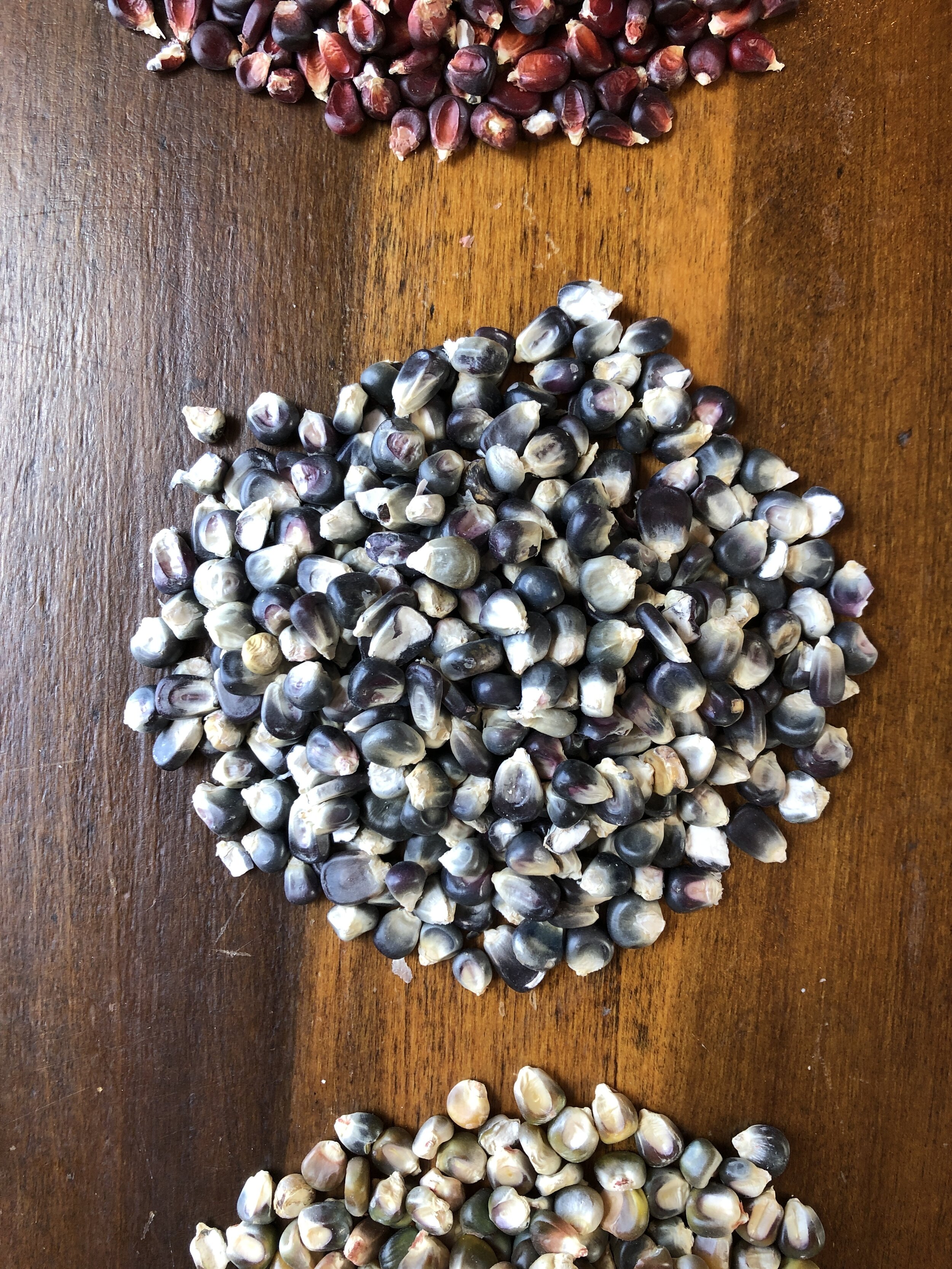
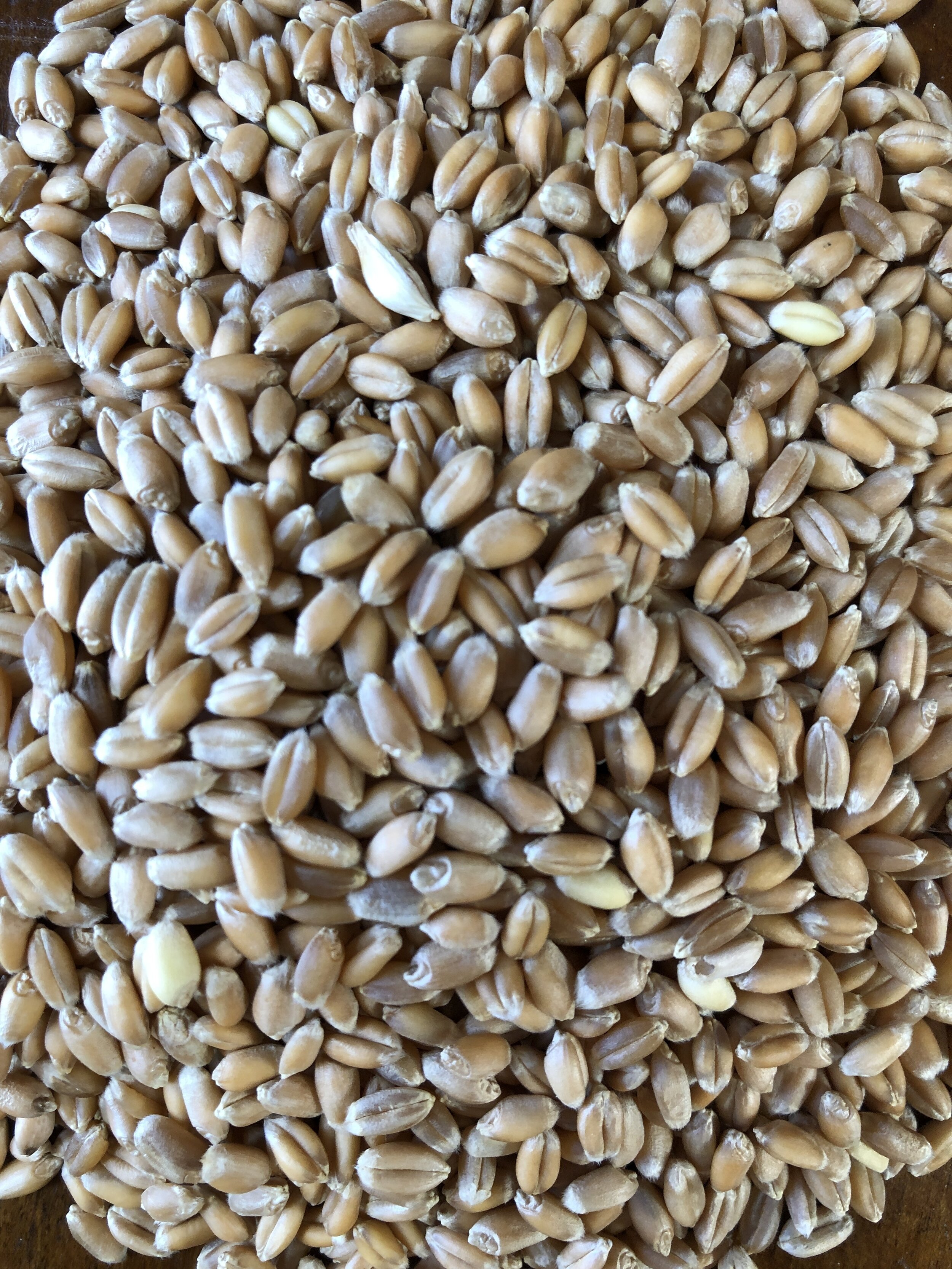
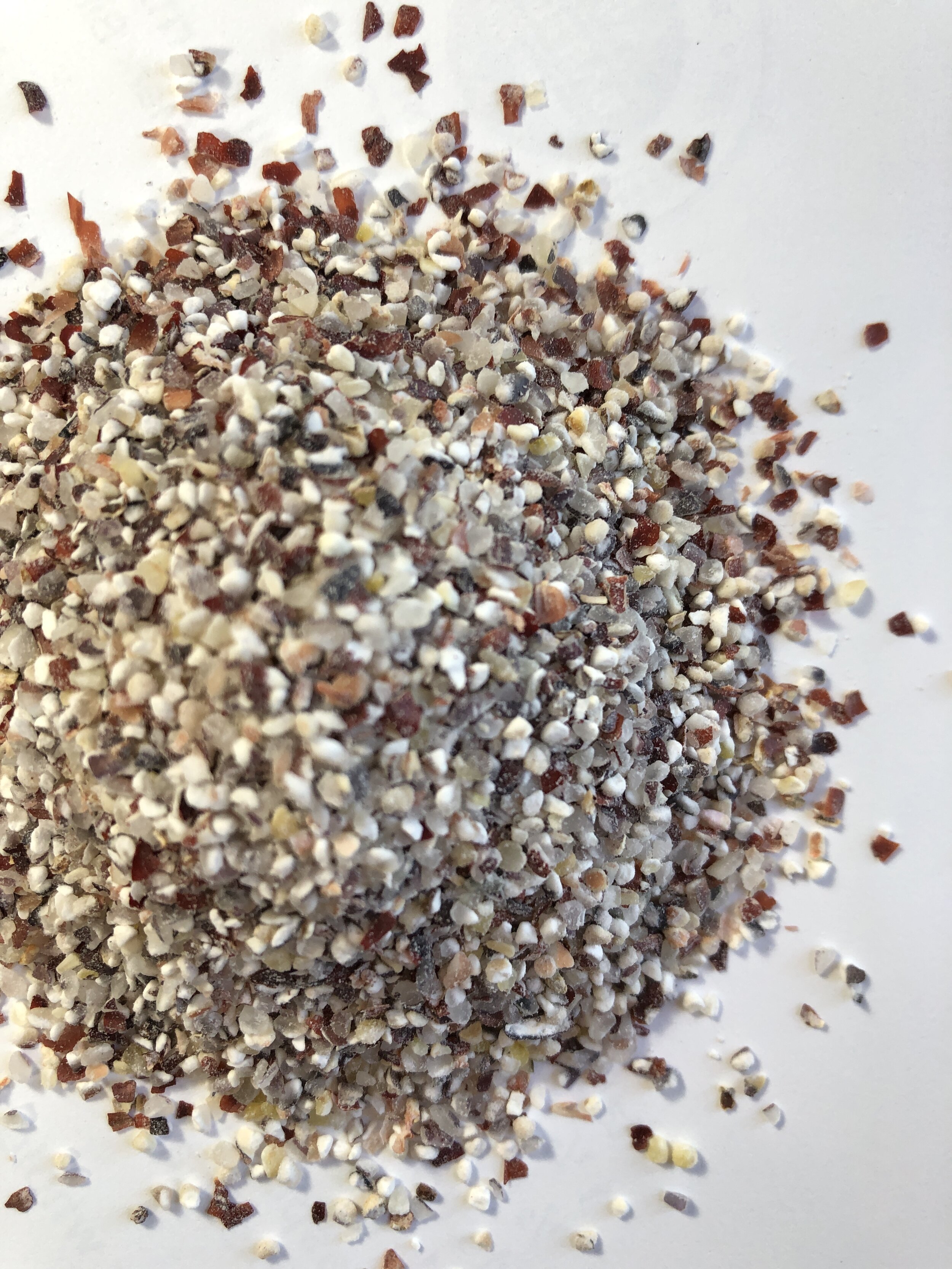
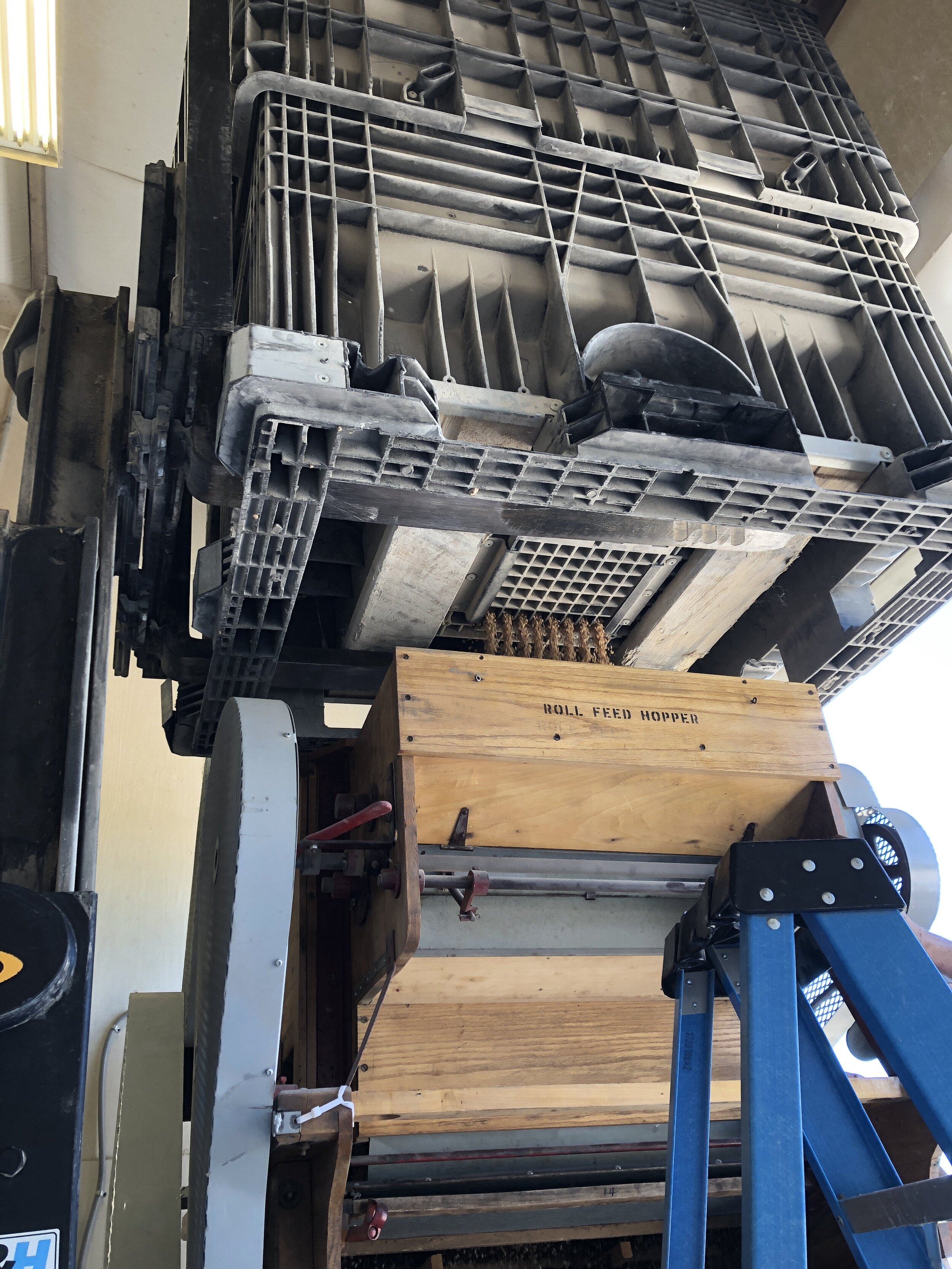
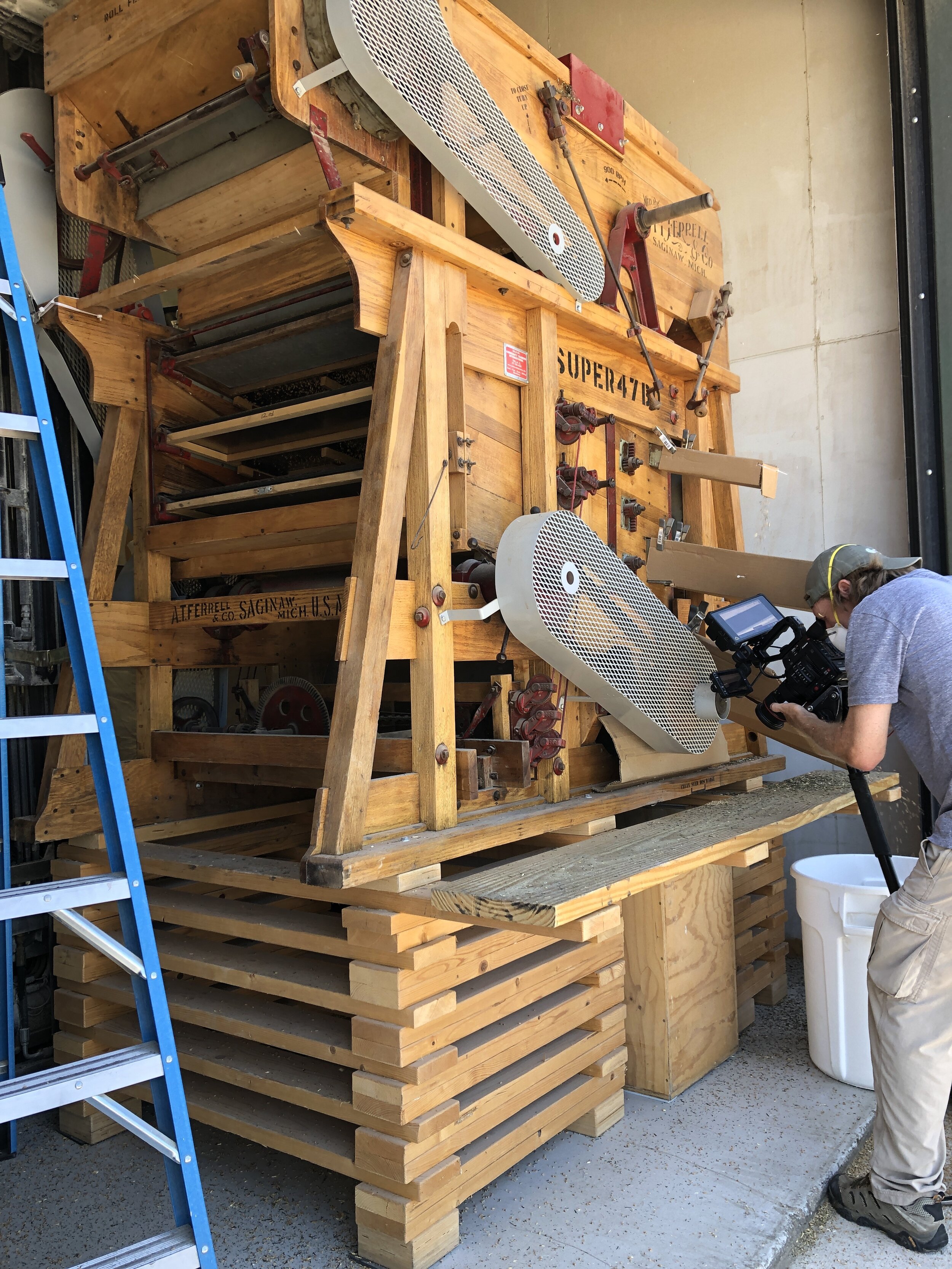
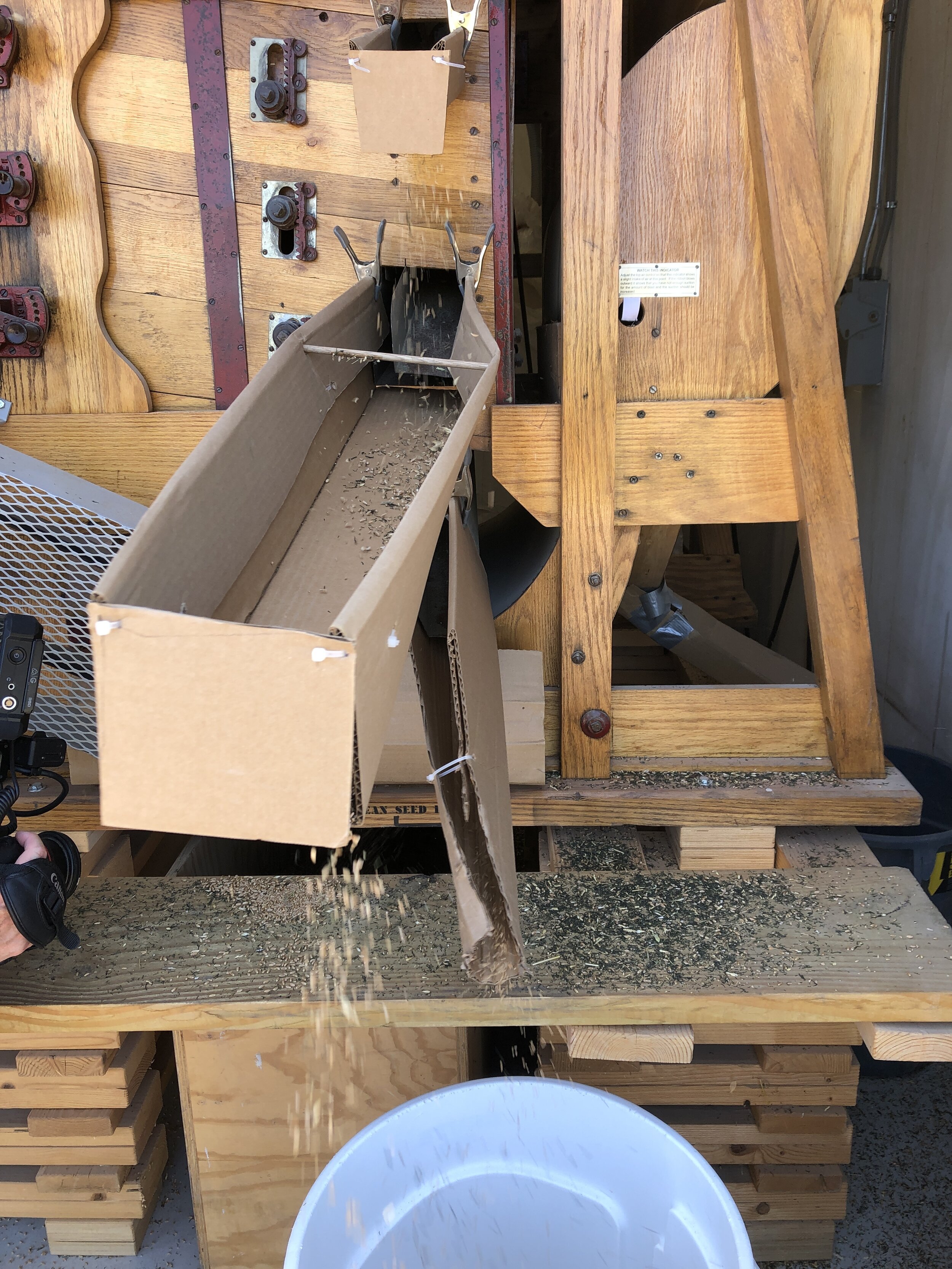
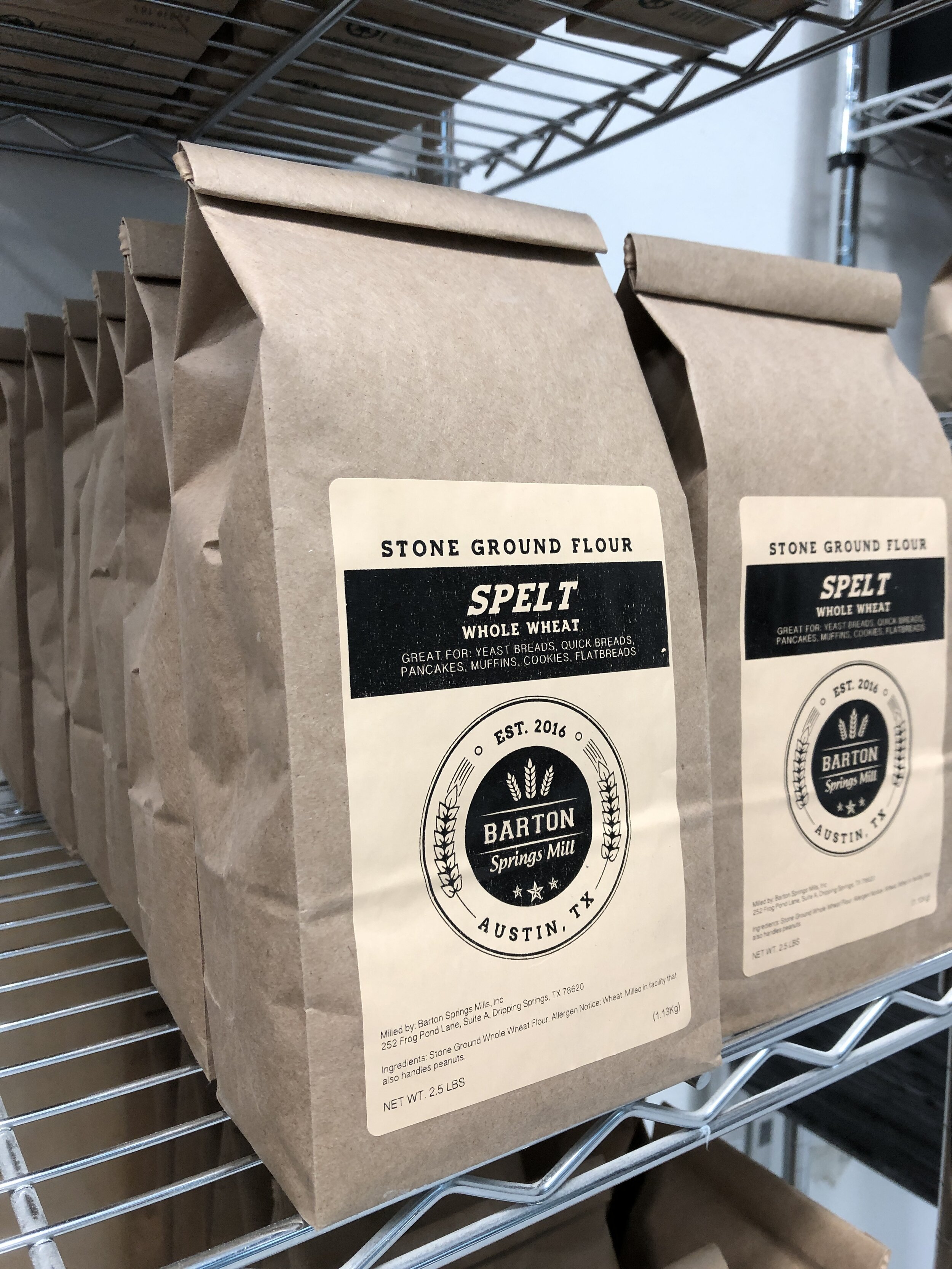


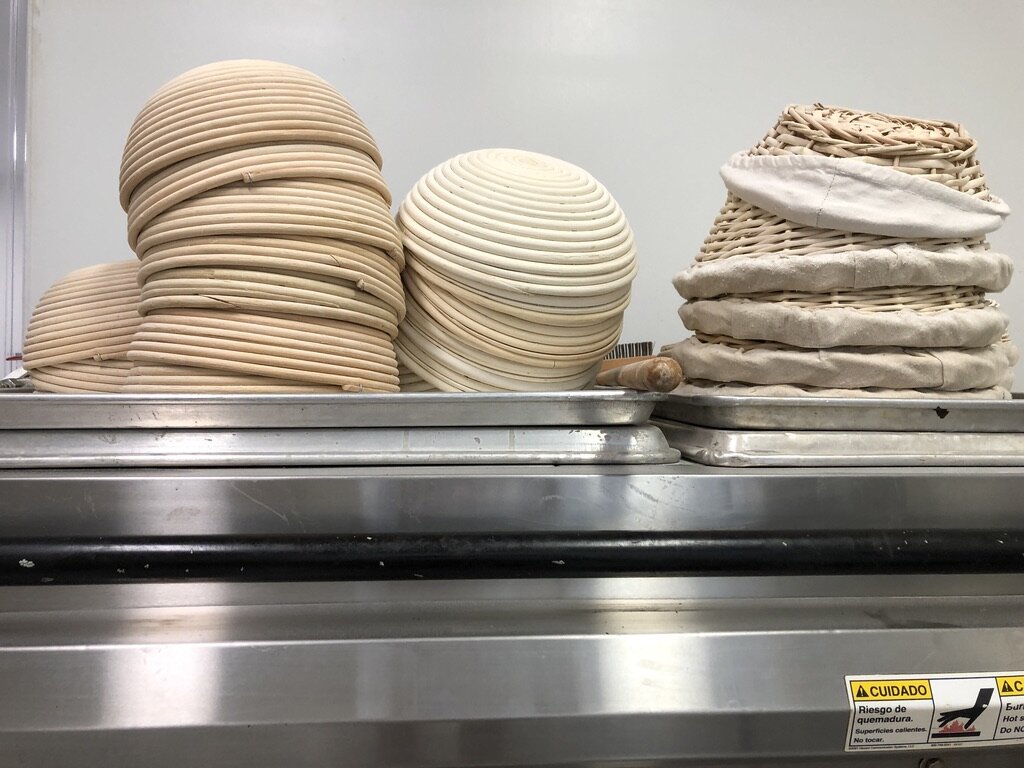
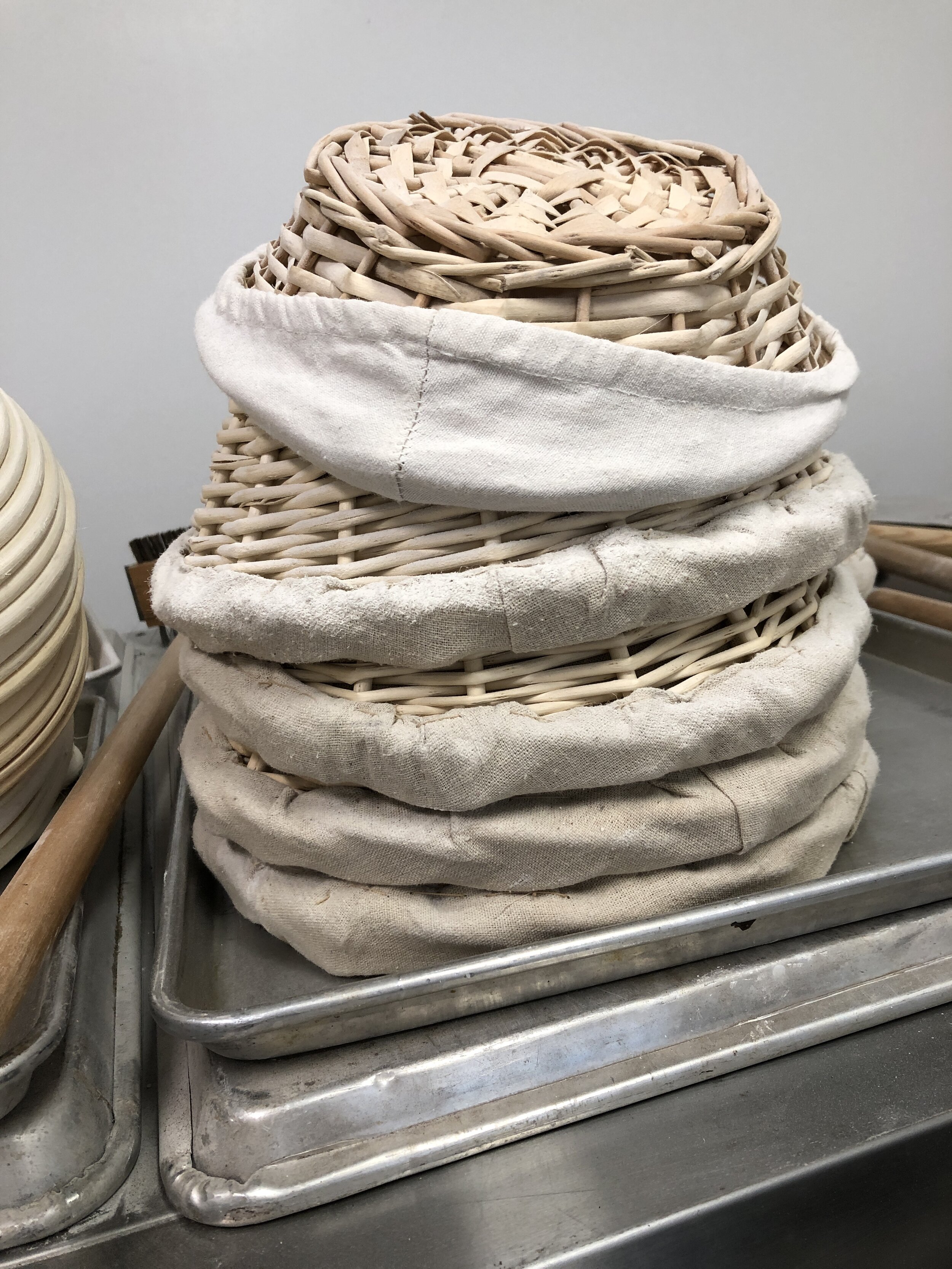

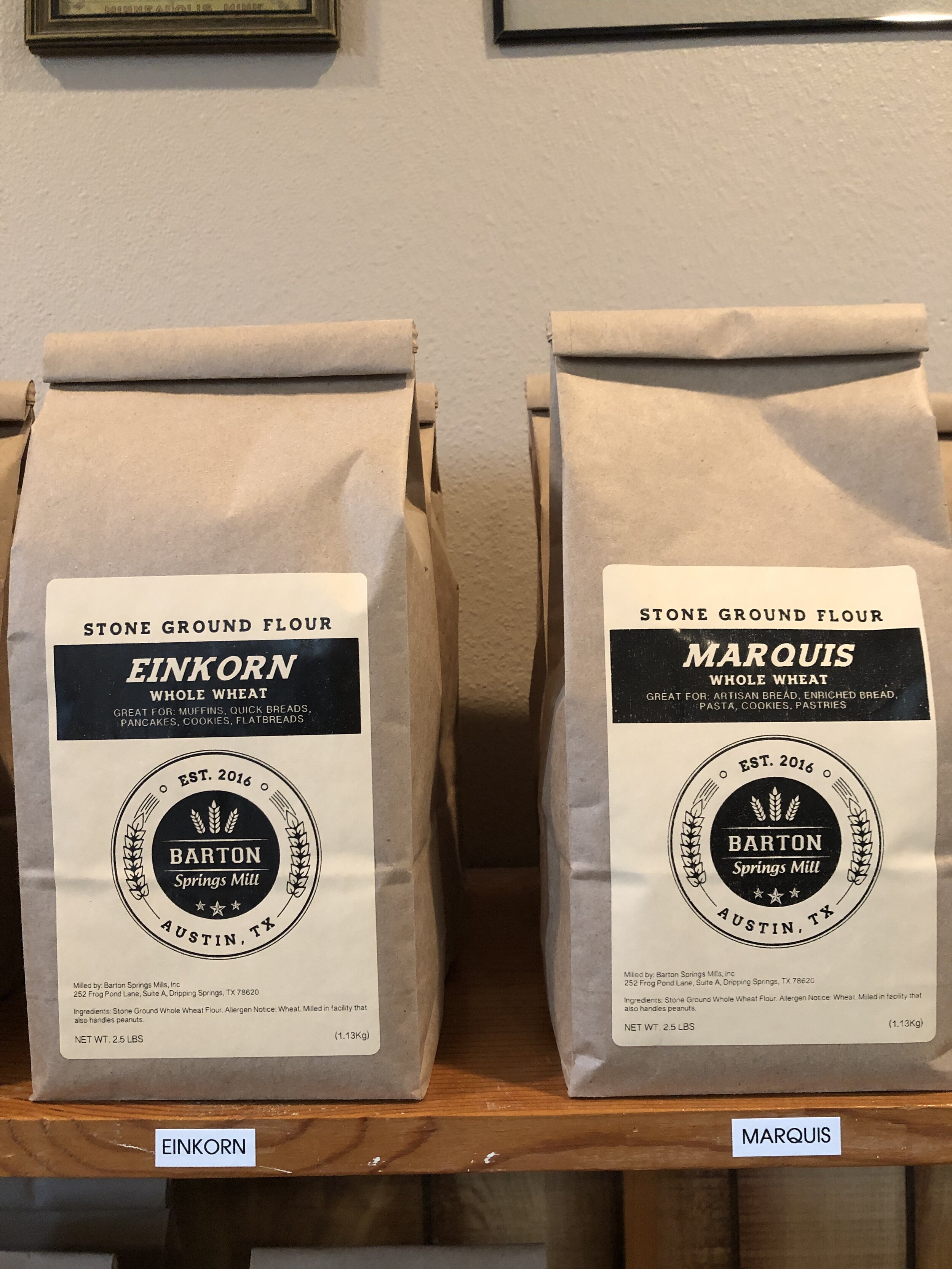



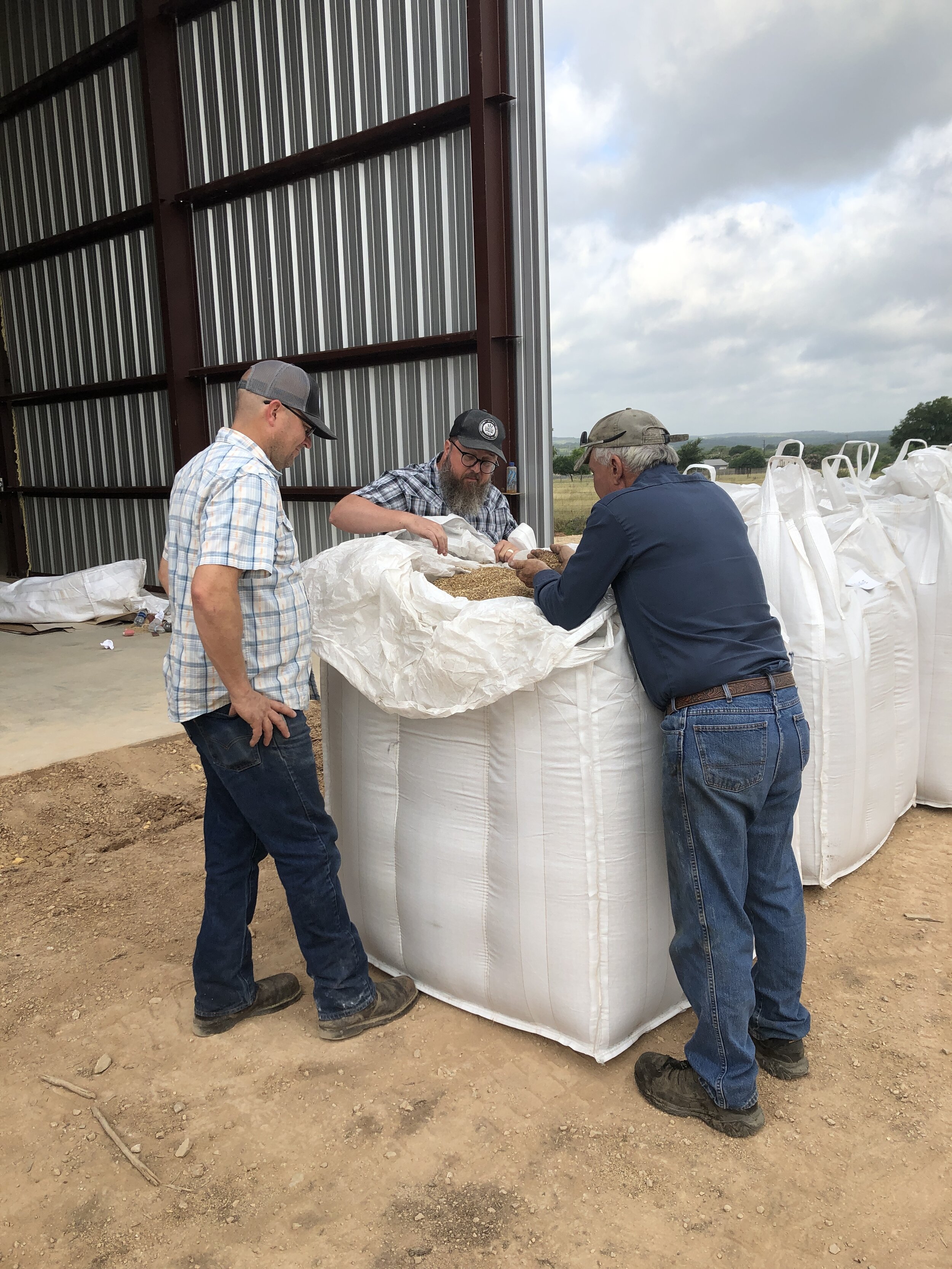


Barton Springs Mill
16604 Fitzhugh Road, Unit B, Dripping Springs, TX 78620
512.554.5981
